
2025 FCAA Global Philanthropy Summit
Funding in Turbulent Times: The Intersection of HIV, Health, and Human Rights
With more than half of the world’s population electing their leaders in 2024, a rising tide of authoritarianism uniting anti-rights actors around the world, and a worrying decline in philanthropic and government resources – it’s time for funders concerned about AIDS to come together for reflection and collective planning.
From January 27-28, 2025, FCAA’s Global Philanthropy Summit will bring together 200 HIV, health, and human rights donors and activists in Washington, D.C. to mobilize resources and galvanize collective action.
A series of plenary sessions and workshops over two days will:
- Assess the impact of recent elections on communities most impacted by HIV;
- Explore the role of philanthropy in this political moment; and,
- Strategize together to protect and strengthen the global HIV response.
We invite you to join us in this transformative journey:
- Join your colleagues and the conversation and register today
- Share your Summit Story
- Download the Attendee Social Media Toolkit



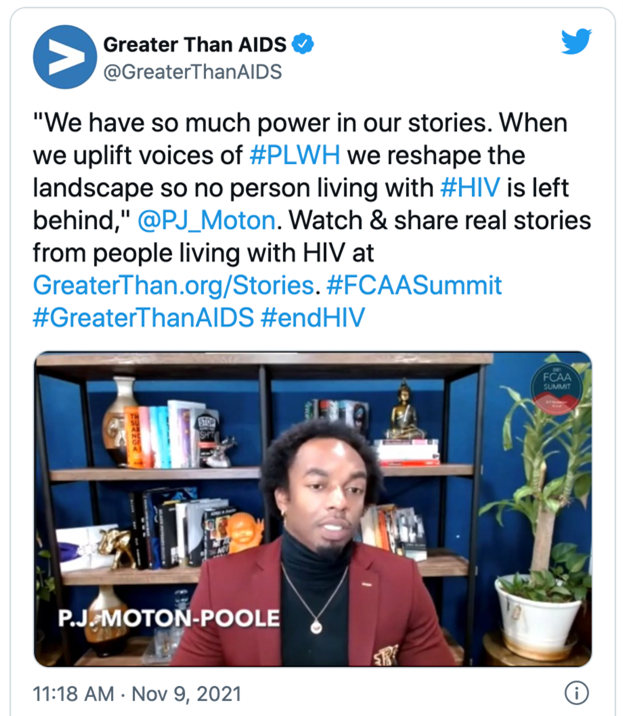
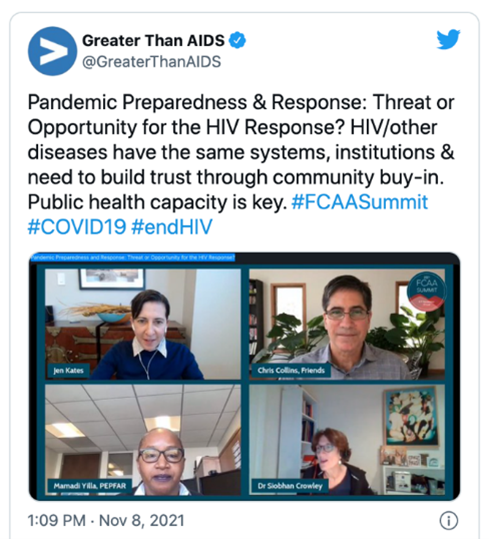
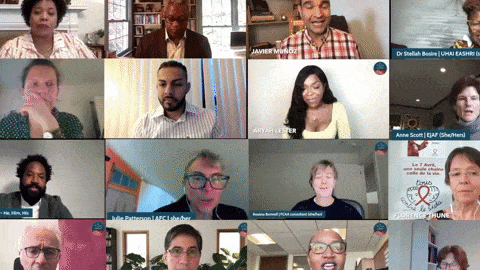

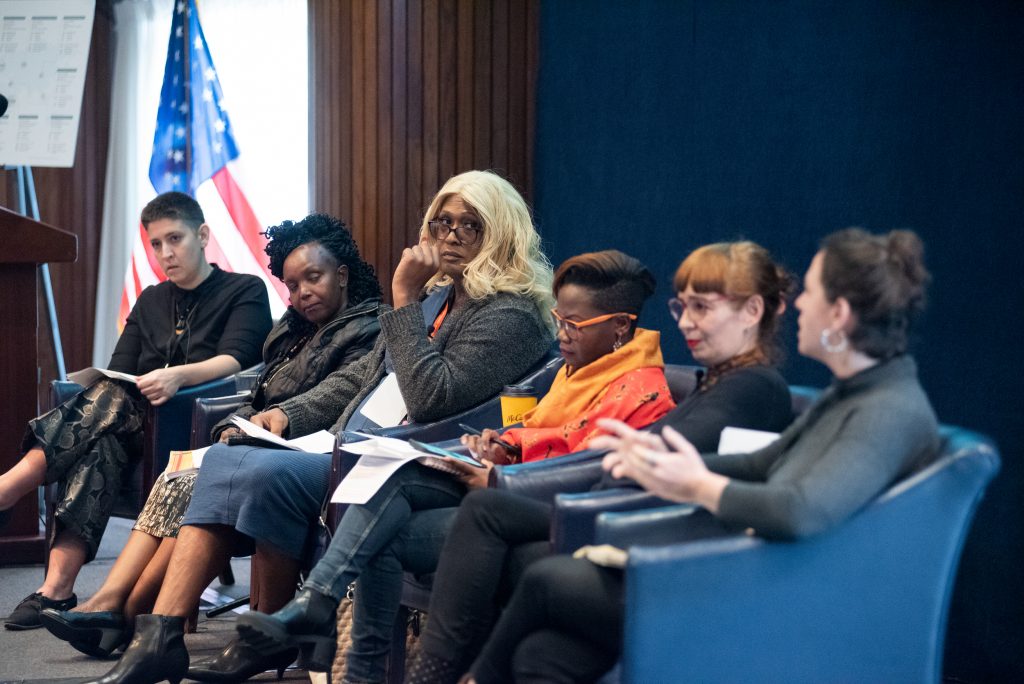
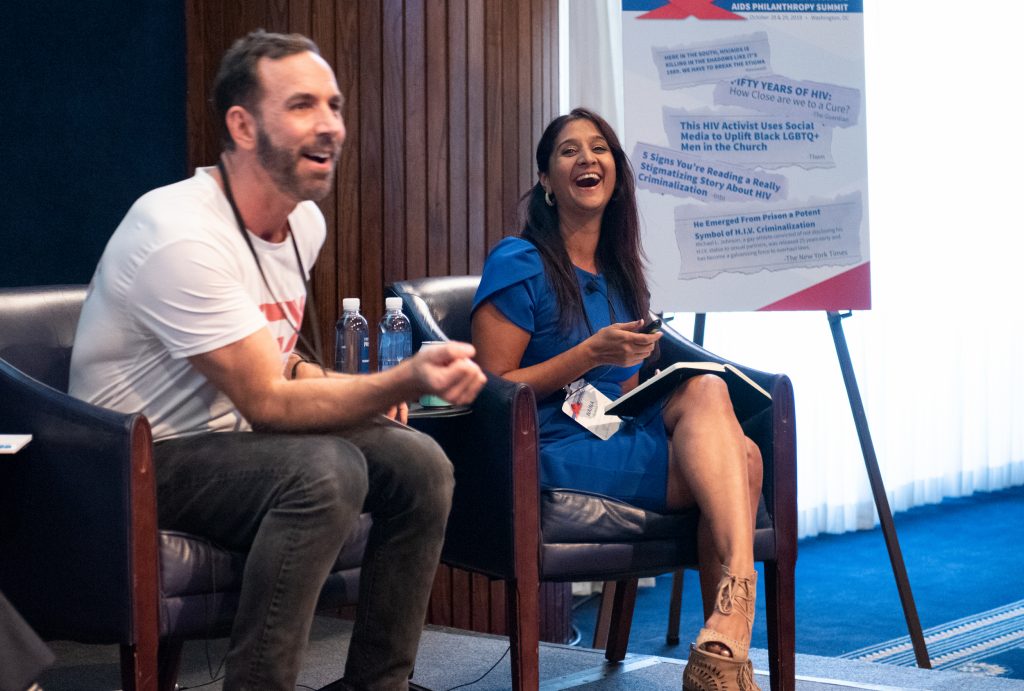
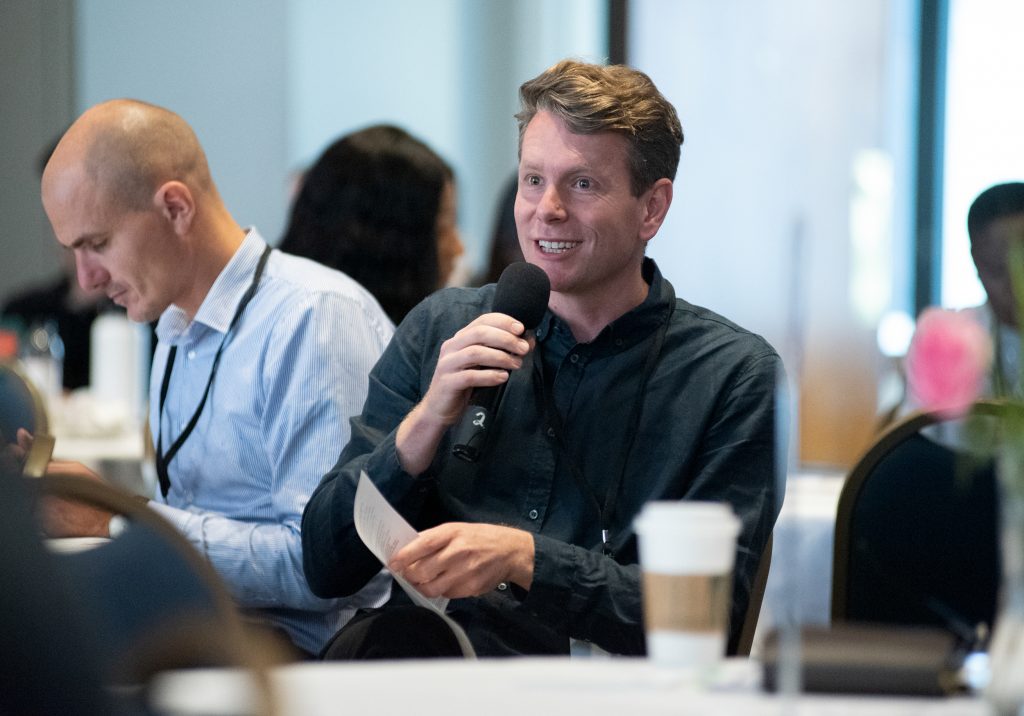
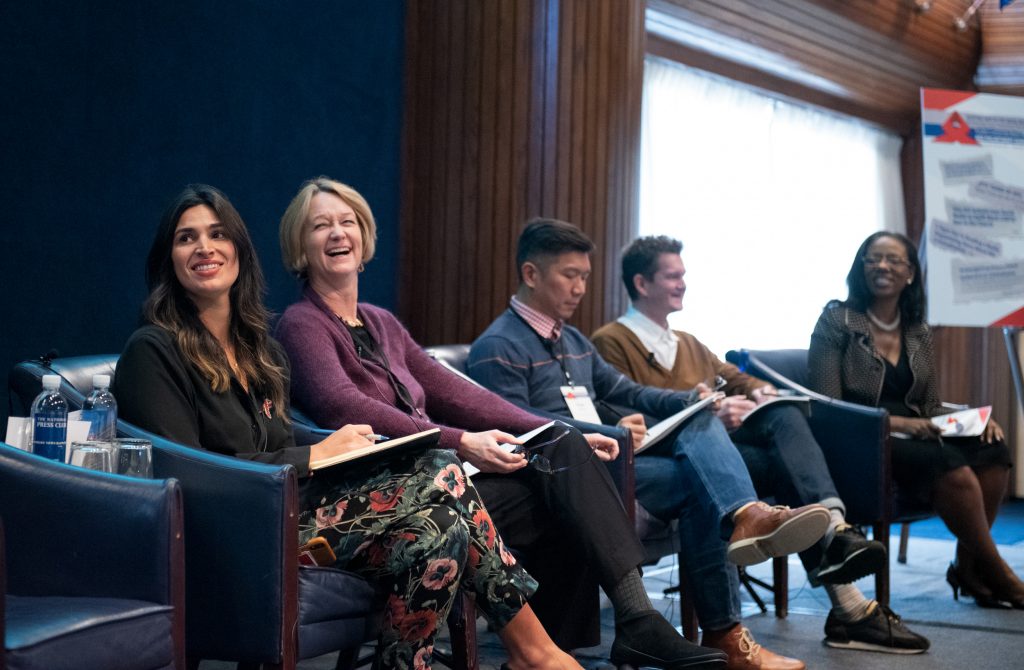

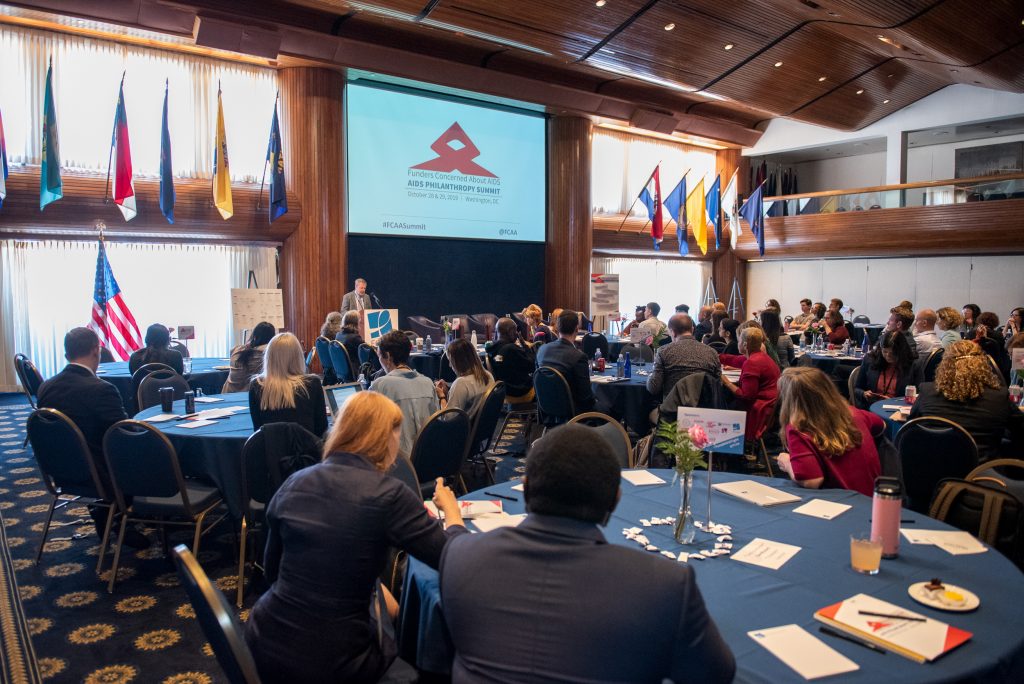







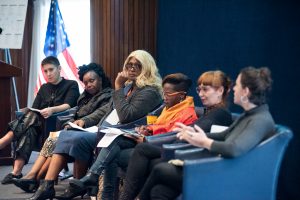
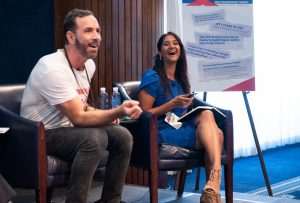
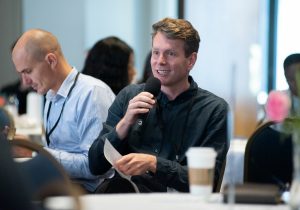
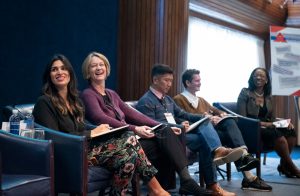

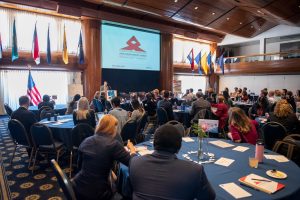
Registration
Visit the FCAA Summit Registration Site for more information on how to register and book your hotel accomodations.
Summit registration is now open to representatives from any public or private grantmaking entity or philanthropic infrastructure organization (i.e., board members, staff, grant advisory committee members, etc.), as well as invited guests and speakers. The registration fee covers admission to the Summit, breakfast, and lunch on both days and a reception for one registrant. Hotel accommodation is not included.
Please note, by registering for this event, you are also agreeing to abide by FCAA’s no-solicitation policy. Please read the full policy HERE.
If you still have questions, please contact Sarah Hamilton [email protected].
Registration Fees:
- FCAA Members* from high-income countries – $600
- Non-members from high-income countries – $850
- Members and non-members from low and middle-income countries – $400
After December 23rd, fees will increase by $100.
*In order to utilize the Member Rate, your institution must be a 2023-2024 member organization of FCAA. Questions regarding your membership status, please visit our member page or contact Sarah Hamilton at [email protected].
Hotel Accommodations: FCAA has a block of Superior Queen rooms at the Summit venue (Washington Plaza Hotel) for $179 per night. Book online or call +1 202-842-1300 and use discount code: FCAA25.
Schedule
Kickstarting the FCAA 2025 Global Philanthropy Summit – Funding in Turbulent Times: The Intersection of HIV, Health, and Human Rights- the opening plenary will focus on the urgent challenges and opportunities in the global HIV response. With political shifts around the globe and a concerning decline in resources for HIV and human rights, this session will ground participants in the critical role of philanthropy in addressing these intersecting crises.
The opening plenary, Now What? The HIV Response in Today’s Political Context, will dive deeper into the Summit’s theme. Moderated by amfAR’s Greg Millett, this high-level discussion will explore the political landscape following major 2024 elections, assess the implications for HIV-affected communities, and examine actionable strategies to fortify the global HIV response.
This session is designed to inspire urgent reflection, catalyze collaboration, and equip funders with the insights needed to navigate the road ahead. Don’t miss this opportunity to engage with thought leaders and align on strategies for impact.
Speakers

Jeffrey S. Crowley (He/Him), MPH is a Distinguished Scholar and Director of the Center for HIV and Infectious Disease Policy at the O’Neill Institute for National and Global Health Law at Georgetown Law and an adjunct professor of law. Crowley’s work has focused on federal health care policy with an emphasis on Medicaid, Medicare, and issues impacting people with HIV and other people with disabilities, as well as low-income people. From 2009 to 2011, he was the Director of the White House Office of National AIDS Policy (ONAP) and Senior Advisor on Disability Policy for President Barack Obama. In this capacity, he led the development of the first comprehensive National HIV/AIDS Strategy for the United States and he served on the White House Health Team during the enactment and early implementation of the Affordable Care Act (ACA). In 2019, he was appointed to a National Academy of Sciences, Engineering and Medicine (NASEM) Committee on the Prevention and Control of Sexually Transmitted Infections in the United States that released its report in March 2021 for which he served as an editor, Sexually Transmitted Infections: Adopting a Sexual Health Paradigm.
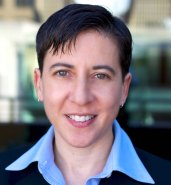
Dr. Jen Kates is Senior Vice President and Director of Global Health & HIV Policy at the Henry J. Kaiser Family Foundation, where she oversees policy analysis and research focused on the U.S. government’s role in global health and on the global and domestic HIV epidemics. Widely regarded as an expert in the field, she regularly publishes and presents on global health and HIV policy issues and is particularly known for her work analyzing donor government investments in global health; assessing and mapping the U.S. government’s global health architecture, programs, and funding; and tracking and analyzing major U.S. HIV programs and financing, and key trends in the HIV epidemic, an area she has been working in for close to thirty years. Prior to joining KFF in 1998, Dr. Kates was a Senior Associate with The Lewin Group, a health care consulting firm, where she focused on HIV policy, strategic planning/health systems analysis, and health care for vulnerable populations. Among other prior positions, she directed the Office of Lesbian, Gay, and Bisexual Concerns at Princeton University.
Dr. Kates has served on numerous federal and private sector advisory committees on global health and HIV issues, including PEPFAR’s Scientific Advisory Board, the NIH Office of AIDS Research Advisory Council, the CDC/HRSA Advisory Committee on HIV, Viral Hepatitis and STD Prevention and Treatment (CHACHSPT), the board of the Global Fund to Fight AIDS, Tuberculosis and Malaria, and the Governing Council of the International AIDS Society. She is also a lecturer at the Johns Hopkins School of Advanced International Studies.
Dr. Kates received her Ph.D. in Health Policy from George Washington University. She holds a Bachelor’s degree from Dartmouth College, a Master’s degree in Public Affairs from the Princeton School of Public and International Affairs and a Master’s degree in Political Science from the University of Massachusetts.

Gregorio (Greg) Millett is a Vice President at amfAR, the Foundation for AIDS Research, and the Director of amfAR’s Public Policy Office in Washington, DC. Mr. Millett is a former senior scientist with the Centers for Disease Control and Prevention, as well as a former Senior Policy Advisor in the White House Domestic Policy Council where he helped author and implement President Obama’s original National HIV/AIDS Strategy. Mr. Millett is a leader in health inequities research. He has published in top medical, public health and policy journals, including JAMA, Lancet, BMJ, Health Affairs, and AJPH, and has been a plenary speaker at multiple IAS and CROI conferences. In early 2020, Mr. Millett and his team provided the first national overview of COVID-19’s impact on Black and Latinx communities in the United States. These research findings were widely reported across print and televised media, and utilized in Congressional hearings that aimed to address COVID-19 health inequities.

Dr. Obinna (Obi) Onyekwena leads The Bill & Melinda Gates Foundation's infectious disease advocacy work and its investments to advance financing and policy goals related to HIV, tuberculosis, malaria, neglected tropical diseases, and the Global Fund to Fight AIDS, Tuberculosis and Malaria.
Before joining the foundation in 2023, Obi spent 10 years at the Global Fund in Switzerland, where he led efforts to shift priorities and policies to advance HIV innovation and delivery across Africa and Asia. He began his medical career at a secondary hospital on the outskirts of Abuja, Nigeria, and went on to support the Nigerian government’s response to HIV, TB, and malaria.
Obi’s earlier positions included associate director of monitoring and evaluation in FHI 360’s Nigeria country office. In that role, he led a team that supported the government in strengthening the use of data to reduce the impact of HIV, TB, and malaria by expanding and strengthening services across high-burden regions. He also led studies to understand district-level platforms for decision-making on maternal and child health in Northern Nigeria.
Obi earned his medical degree at the University of Nigeria, Nsukka, and has a Master of Science degree in public health from the London School of Hygiene and Tropical Medicine.

A native of Cuba, former U.S. Rep. Ileana Ros-Lehtinen (R-FL) served for almost three decades as a Member of Congress representing diverse areas in South Florida. She was the Chairwoman of the House Committee on Foreign Affairs and the Chairwoman of the Subcommittee on the Middle East and North Africa (MENA). In these roles, she led on pressing foreign policy issues, including championing the advancement of freedom and democracy for all, fighting Islamist extremism; supporting free trade agreements with Colombia, Panama, and South Korea; and imposing sanctions on human rights violators in Venezuela. Her record over nearly four decades of public service includes fighting against tyranny and oppression, particularly in her native homeland of Cuba, as well as working diligently to support and strengthen the US - Israel strategic partnership.
During Ros-Lehtinen’s tenure in Congress, she worked to ensure that all individuals, regardless of sexual orientation or gender identity were treated and protected equally under the law. She was a founding member of the Congressional LGBT Equality Caucus as well as the Congressional Anti-Bullying Caucus. She was the lead Republican member on the Respect for Marriage Act to repeal DOMA, the Employment Non-Discrimination Act, Every Child Deserves a Family Act, Restore Honor to Service Members Act, and the Student Non-Discrimination Act.
Rep. Ros-Lehtinen holds multiple education degrees, including a doctorate from the University of Miami, Master’s and Bachelor’s degrees from Florida International University, and an Associate’s degree from Miami Dade College. She began her career as a Florida certified teacher, and then founded, and served as the principal of a private bilingual elementary school.
She was the first Hispanic woman elected to Congress, as well as to the State of Florida House of Representatives and Senate. She is married to Dexter Lehtinen, former US Attorney for the Southern District of Florida, and a decorated Vietnam combat veteran. They have four adult children and nine grandchildren.
Public Service and Affiliations
- Member, U.S. House of Representatives (1989-2019)
- Chairwoman. Congressional Hispanic Leadership Institute
- Board Member, Running Start (2022)
- Board Member, U.S. Capitol Historical Society (2022)
- Board Member, Close Up Foundation (2023)
- Board Member, Association of Former Members of Congress (2023)
- Board Member, American Jewish International Relations B’nai B’rith (2023)
- Board Member, Friends of the Global Fight, 2023
- Congressional Advisory Board Member, Middle East Media Research Institute (2022)
- Advisory Board Member, American Jewish International Relations Institute (2022)
- Advisory Board Member, Georgetown Institute of Politics and Public Service, McCourt School of Public Policy (2021)
- Advisory Council Member, American Latino Veterans Association (2021)
- Advisory Council Member, International Republican Institute, Latin American and the Caribbean (2023)
- Advisory Council Member, George W. Bush Institute (2023)
- Leadership Council, Kids In Need of Defense (KIND) (2023)
- Advisory Council Member, Leadership Council for Women in National Security (2024)
Session Designer: Health GAP
No country is on track when it comes to delivering on the global HIV goals for criminalized and marginalized populations. But major actors in the HIV response including PEPFAR, UNAIDS and the Global Fund are focusing more and more on prioritizing sustainability in the HIV response. This session will provide FCAA members with the tools to explore the political, financial, and technical fault lines of current approaches to sustainability planning. We will unpack the contradictions and threats regarding sustainability from the perspective of grantmakers and civil society, for example: Are the governments that criminalise our communities truly ready for sustainability plans, when those plans require resources for programs on criminalised and marginalised populations to be implemented and financed by those same national governments? We will develop the foundations of a community-informed response to ongoing global sustainability planning, based on the foundational principle that people most affected by the AIDS pandemic determining the agenda regarding sustainability.
Speakers

Ms. Grace Kamau (She/Her) holds a bachelor's degree in Sociology and Political science from the Catholic University of Eastern Africa. She identifies as a female sex worker and has worked in the HIV field in relation to key populations for 18 years. She has previously worked at Bar Hostess Empowerment Programme (BHESP) as Program Officer and worked as a consultant with the Global Network of Sex Work Projects. Her passion has been working with sex workers on issues of HIV prevention, human rights and movement building. She has also worked as the National coordinator of the Kenya Key Population Consortium, and she currently works as the Regional Coordinator at the African Sex Workers Alliance in Nairobi. She sits as a member of Feminist Opportunity Now (FON) Africa Regional Coordination Committee (RCAC). She is also a Supervisory board member of Mama Cash.

Maureen Milanga (She/Her) is the Director of International Policy and Advocacy at Health Global Access Project (Health GAP), where she works across sub-Saharan countries with communities of PLHIV and Key Populations to campaign for increased access to HIV treatment, change outdated HIV treatment policies, mobilize civil society to demand better science, increase meaningful civil society engagement and support the enhancement of key population service delivery by governments and donors. Maureen has been a member of civil society representing various countries during the PEPFAR Planning Meetings since the meetings began in 2014 and was also a co-chair of the Kenya Global Fund funding request for the 2018-2020 cycle. Ms. Milanga was also a member of the UNAIDS advisory group to the Executive Director of UNAIDS(UAG) and a co-chair of the UAG breakout group on Key Populations. She has also supported Key Population-led community-led monitoring programs in Tanzania, Kenya, and South Africa.

Wanja Ngure (She/Her) is a Kenyan feminist and human rights activist with over two decades of experience in feminism, human rights programming, policy advocacy, and public health. Based in Nairobi, she serves as a Grant Manager at UHAI - the East African Sexual Health and Rights Initiative (UHAI EASHRI), the first indigenous LGBTIQ+ fund in Africa, working with sex workers, LGBTIQ+ communities, and people at the intersections of drug use across seven Eastern African countries.
Wanja has been at the forefront of influencing SRHR funding, leading advocacy with multilateral institutions like the UN, and strengthening protections for marginalized communities in Burundi, Kenya, Rwanda, Tanzania, Uganda, the DRC, and Ethiopia as well as supporting Pan-African work.
A strong advocate for Universal Health Coverage that puts communities at the farthest at the center, and a believer in asset-based community development, Wanja believes in building resilient movements and centering communities in development. Her leadership continues to shape transformative policies and initiatives in SRHR, HIV response, and feminist grantmaking across Africa.

Sibongile Tshabalala is the National Chairperson of Treatment Action Campaign (TAC). The role of a party chairperson is often quite different from other leaders. The Chairperson often plays an important role in strategies to recruit and retain members, in campaign fundraising, and in internal governance, where they may serve as a member of, or even preside over, a governing board or nation council as the chairperson. She’s currently part of the global fund country coordinating mechanism, she is
also a board member at rural Health Advocacy Project and has recently been appointed to sit in the minister’s advisory committee on the COVID19 vaccine. Sibongile is part of the top 5 PLHIV sector leaders as she is openly living with HIV, having been diagnosed with HIV in 2000 after a long and severe illness. She has worked as a provincial finance and admin assistant at TAC from 2015-2017 and previously she held the position of branch organizer at her branch Vosloorus. Sibongile also sits in the National Working Committee and forms part of the Board and The Executive manager of the organization Treatment Action Campaign.
Session Designer: AIDS United
The United States leads the world in the felony prosecution and imprisonment of people living with HIV, hepatitis, and TB for consensual, low-risk, and no-risk behavior. Studies have consistently found that Black people, cisgender and transgender women, and sex workers are disproportionately impacted by HIV criminal laws and their enforcement. Efforts to address these challenges require strategy led by communities most impacted, collaboration across movements, and long-term investments that transcend a single policy win.
In 2022, The Center for HIV Law & Policy, AIDS United, and the Williams Institute, in partnership with Decriminalize Sex Work and Movement for Black Lives, created the Sex/Health Alliance (the Alliance) to support a robust, community-led, sustainable movement to end criminalization of consensual sex, race, sexual orientation, and gender identity in the United States. This session will share findings from formative focus groups, the Alliance’s programmatic and grantmaking model, and recommendations for other funders based on these experiences.
This session will:
- Discuss the history of HIV and other infectious disease criminal laws and their roots in homophobia, transphobia, serophobia, racism, and classism.
- Describe the needs of people affected by criminalization and advocates.
- Examine strategies the philanthropic community can leverage to support a robust movement to end such criminalization in the United States.
Speakers

Dr. Athena Cross (She/Her) is a distinguished public health executive with 19 years of leadership experience spanning both nonprofit and governmental sectors. Currently serving as the Vice President and Chief Program Officer at AIDS United, she has significantly expanded programmatic funding and service capacity. As the founder of Cross Health Care Solutions, Dr. Cross has driven impactful initiatives addressing health inequities through strategic policymaking, innovative public-private partnerships, and collaborative efforts with community-based organizations, enhancing access to reproductive and women’s health services. Her expertise also includes leading pharmaceutical commercialization and developing national healthcare operations strategies, particularly in response to the Affordable Care Act’s policy and reimbursement challenges. Dr. Cross holds a Doctor of Public Health from UNC-Chapel Hill and is deeply committed to advancing social justice and reducing healthcare disparities for marginalized communities.

S. Mandisa Moore-O’Neal (She/Her) is a Black feminist civil rights attorney, a trained facilitator, and a cultural and political strategist based in New Orleans. Prior to joining The Center for HIV Law and Policy (CHLP) as Executive Director, she founded The Moore-O’Neal Law Group, a law and policy practice focused on litigation, education, and advocacy on HIV decriminalization, family law, employment and public accommodations discrimination, and police accountability issues. At its core, her legal work is best defined as using a Black feminist and abolitionist framework to craft legal strategies that move us closer to liberation. Mandisa is a founding member of the Louisiana Coalition on Criminalization and Health.

Judy Yu (She/Her) has been a senior program officer in the Sexual Orientation and Gender Identity and Expression (SOGIE) program at Wellspring Philanthropic Fund since 2016. Previously, Judy was the Director of the Juvenile Justice Project at the Correctional Association of New York (CA), where she oversaw and managed the CA’s youth justice advocacy reform efforts in New York. She also served as Director of Programs at APEX for Youth, a mentoring and educational services program for low income Asian and immigrant youth in New York City. Judy led the youth leadership, HIV and violence prevention peer education, and artist activist programs as Associate Director of Youth Enrichment Services of the New York Lesbian, Gay, Bisexual & Transgender Community Center. She served on the board of directors for Queer Arts and is currently on the board of Funders for LGBTQ Issues.
This session will explore the innovative intermediary funding and incubation model from ViiV Healthcare’s AMP Grant Initiative. By investing in community based organizations to create new grantmaking streams for community leaders and projects, the AMP Grant is shifting dollars, resources, and power in deeper partnership with those closest to the complex issues of HIV and intersecting structural and societal barriers. The panel will feature funders, community-based grantmakers, and grassroots leaders who will discuss the challenges and opportunities in implementing this funding approach, which includes micro-grants, capacity building, mentorship, and other network supports. Attendees will gain insights into alternative funding models that prioritize equity, innovation, and community partnerships, fostering stronger relationships and trust while improving health outcomes for underserved communities.
Speakers

Dr. Russell Brewer (He/Him) currently serves as Research Professor at The University of Chicago (UC) and Director of Health Equity Research for the Chicago Center for HIV Elimination at UC. He is the Project Director of the ViiV Healthcare funded BIA program which is an incubator and accelerator program focused on building the infrastructure and organizational capacity of Black-led organizations in Chicago, Illinois. His research and partnership efforts are focused on addressing the structural barriers to HIV services among Black sexual and gender minorities and criminal legal-involved populations in Chicago and the Southern United States. He has more than 25 years of experience in public health program development, implementation, and evaluation from a variety of settings (e.g., non-profit, governmental public health, and philanthropy) and levels (e.g., local, state, and national).

Cecilia Kihara (She/Her) is a right-based advocate with over 20 years of experience in the HIV and Sexual and Reproductive Health field gained through work in low- and middle-income countries across the globe. Innovation and collaboration are the cornerstone of her approach recognizing that communities hold the expertise and power to change health systems.
She is currently a Senior Manager in the ViiV Healthcare External Affairs Team overseeing the operational management and steady growth of $35M community giving portfolio which includes providing strategic guidance to the youth work.
She previously managed the Global ViiV Healthcare Community Portfolio focused on improving HIV outcomes for children, adolescents, and young people living with and impacted by HIV in Africa, Asia and Europe.
Prior to ViiV Healthcare she led the Adolescent HIV technical portfolio for Frontline AIDS and spearheaded the HIV/SRH integration agenda in East and Southern Africa for the International Planned Parenthood Federation. She holds an MA from the Warwick Business School and an MSc in Public Health from the London School of Hygiene and Tropical Medicine and has served on several technical think-tanks to advance innovation and support for adolescents and young people living with and affected by HIV.

Khloe Rios-Wyatt (She/Her) is an immigrant Transgender woman, activist, and community organizer committed to elevating the quality of life for Transgender individuals. While her advocacy journey began long before, a harrowing experience of physical assault in downtown Los Angeles in 2019 deepened her resolve. She earned a Bachelor's Degree in Communications with a Public Relations emphasis and a minor in Spanish from California State University, Fullerton.
As a founding member and CEO of Alianza Translatinx, the first Transgender-led organization in Orange County, CA, Khloe has spearheaded initiatives addressing the diverse health and social needs of Transgender people in the region. Under her leadership, Alianza launched Orange County's inaugural Housing Report, underscoring a commitment to housing justice—a fundamental right for all. The organization serves approximately 2,500 clients annually, providing services that empower Transgender, gender non-conforming, and intersex individuals through a community-centered approach.
Khloe actively participates in local planning bodies, including the OC HIV Planning Council and the OC Integrated Plan Committee, reinforcing her dedication to systemic change. With a vision for equitable access to resources and opportunities, she continues to advocate for practices that uplift marginalized voices.

Finn Schubert, MPH (He/Him) has over 15 years of experience working in LGBTQ+ health, sexual and reproductive health, and HIV care and prevention. Most recently, Finn has overseen the expansion of LGBTQ+ health services for the largest hospital and licensed nursing home in New Jersey. Finn also works as a consultant with an emphasis on building accountable services and partnerships between healthcare facilities and the LGBTQ+ community and as a capacity coach with the Transgender Strategy Center. In previous roles, Finn managed multimillion dollar initiatives in HIV care and prevention and rolled out national funding and capacity development initiatives aimed at improving access to reproductive health services in rural community health centers. He has over a dozen peer-reviewed publications in medical and public health journals, and has lectured on trans health at many major medical centers. Finn is passionate about writing and storytelling as a means of liberation. His second essay collection, There Are No Rules for a Pregnant Trans Body, will come out in late 2024.

Vance White (He/Him) is the Executive Director and Founder of the School of Opulence. With a mission to enhance the quality of life and life expectancy of Black and Brown LGBTQIA+ individuals in the Chicagoland area, Vance leads efforts in HIV testing, community engagement, education, and advocacy. Drawing from over a decade of personal experience in local and federal prison systems, he brings expertise in reentry issues intersecting with the LGBTQIA+ community. As a member of various influential councils and coalitions, including the Chicago Co-Governance Council, Chicagoland Syndemic Advisory Council and BLACHE, Vance is dedicated to improving access to healthcare and services for marginalized populations. Additionally, he is recognized as a Legendary leader in the House Ball community.
This year, we’ve set aside space for five Open Space sessions, running parallel to the workshops, to ensure flexibility and responsiveness to emerging issues. These sessions are an opportunity for donors to propose and facilitate discussions on pressing topics not covered in the formal agenda.
Taking place just one week after the U.S. presidential inauguration, we anticipate last-minute discussions or strategic planning sessions will be essential. Open Space provides a dynamic and inclusive forum to explore urgent questions, share insights, and collaborate on actionable ideas in real time.
Whether addressing new challenges, amplifying emerging opportunities, or deepening discussions sparked by the Summit, these sessions are designed to maximize the impact of our time together. Visit the check-in desk to propose a topic, join a conversation, and make the most of this unique chance to connect with peers and tackle critical issues as they arise.
In Eastern Africa, LGBTIQ+ and sex worker communities continue to face increasing hostilities compounded by escalating anti-gender and anti-rights movements from host governments and religious groups. These forces have led to heightened discrimination and oppression risking the gains achieved in the HIV response over the years. Some countries such as the Democratic Republic of Congo and Ethiopia have few gains due to heightened hostilities by the Government. Amid this backdrop, these communities who are already disproportionately affected by HIV are often sidelined in decision-making affecting their funding and impact on sustainability conversations. The erasure of these groups from critical funding dialogues not only undermines their health and rights outcomes but also threatens the broader goal of ending the HIV epidemic. As we confront these pressing challenges, it becomes imperative to reimagine funding strategies that are inclusive, resilient, and responsive to the needs of communities.
Through an examination of the rise of anti-gender/rights movements, and their impact on global and local funding mechanisms, attendees will gain an understanding of the current trends around HIV funding, particularly how LGBTIQ+, sex workers, and people who use drugs are meaningfully engaged in sustainability.
Speakers

Micheal Ighodaro (He/Him), a passionate advocate for LGBTI rights and HIV prevention, serves as Executive Director for Global Black Gay Men Connect. Originally from Nigeria, Micheal had to flee his country after he was attacked due to his sexual orientation and work. Micheal worked in HIV prevention and care for the LGBTI community around Africa for many years. He has also worked with AVAC, the Housing Works and the International Gay and Lesbian Human Rights Commission in New York. Micheal was honored by President Obama as a refugee Champion of Change. Micheal is a member of several HIV/LGBT advocacy groups around Africa. He has spoken before the United Nations, the US Congress and State Department. His work has appeared in the Huffington Post, Buzzfeed, New York Times and several UN news outlets. Micheal is currently a student of The City University of New York.

Julia Lukomnik (She/Her) is a Strategic Advisor to Aidsfonds – Soa Aids Nederland. In this role, Julia leads advocacy to increase funding for the HIV response and the human rights of Key Populations, and to mainstream decolonial and participatory grant-making and governance practices. Previously, Julia worked as a Senior Program Officer at the Open Society Foundations, where she supported grantees working at the nexus of sexual and reproductive health, human rights, and social inclusion. Julia has over 15 years of experience working with civil society organizations and philanthropies across East Africa, Eastern Europe and Central Asia, Europe, Latin America, and the U.S. She founded and directs VAPA Consulting, a feminist consulting firm that blends social science, participatory research, facilitation, and storytelling to drive durable systems change. She has advised various U.S. and European foundations and think tanks, as well as the United Nations Development Programme, and the Uruguayan Ministry of Social Development.

Maureen Milanga (She/Her) is the Director of International Policy and Advocacy at Health Global Access Project (Health GAP), where she works across sub-Saharan countries with communities of PLHIV and Key Populations to campaign for increased access to HIV treatment, change outdated HIV treatment policies, mobilize civil society to demand better science, increase meaningful civil society engagement and support the enhancement of key population service delivery by governments and donors. Maureen has been a member of civil society representing various countries during the PEPFAR Planning Meetings since the meetings began in 2014 and was also a co-chair of the Kenya Global Fund funding request for the 2018-2020 cycle. Ms. Milanga was also a member of the UNAIDS advisory group to the Executive Director of UNAIDS(UAG) and a co-chair of the UAG breakout group on Key Populations. She has also supported Key Population-led community-led monitoring programs in Tanzania, Kenya, and South Africa.

Nana Millers (She/Her) is an unapologetic rural transgender youth woman and trans sex worker activist with a robust background in transgender and gender-diverse advocacy. As the Founder and Executive Director of Trans Youth Initiative-Uganda, a pioneering organization led by rural transgender youth women, transgender youth sex workers, and gender-diverse individuals in Western Uganda, Nana Millers is dedicated to advancing, protecting, and promoting the rights of rural transgender and gender-diverse youth communities.
With a strong grasp of laws and human and health rights, she has become a skilled advocate who supports her community despite the challenging and hostile environment she faces. Nana also serves on the board of the Uganda Key Population Consortium (UKPC) and has actively championed the needs of rural transgender youth women, transgender sex workers, and gender-diverse people in various influential spaces, including the Global Fund Youth Council, which advises the Executive Director of the Global Fund on issues affecting young people in their diversity.
In 2021, Nana was honored with the Accountability International Youth Leadership Award for her exceptional work in promoting accountability in the global response to human rights and sustainable development.

Wanja Ngure (She/Her) is a Kenyan feminist and human rights activist with over two decades of experience in feminism, human rights programming, policy advocacy, and public health. Based in Nairobi, she serves as a Grant Manager at UHAI - the East African Sexual Health and Rights Initiative (UHAI EASHRI), the first indigenous LGBTIQ+ fund in Africa, working with sex workers, LGBTIQ+ communities, and people at the intersections of drug use across seven Eastern African countries.
Wanja has been at the forefront of influencing SRHR funding, leading advocacy with multilateral institutions like the UN, and strengthening protections for marginalized communities in Burundi, Kenya, Rwanda, Tanzania, Uganda, the DRC, and Ethiopia as well as supporting Pan-African work.
A strong advocate for Universal Health Coverage that puts communities at the farthest at the center, and a believer in asset-based community development, Wanja believes in building resilient movements and centering communities in development. Her leadership continues to shape transformative policies and initiatives in SRHR, HIV response, and feminist grantmaking across Africa.
Session Designer: International Planned Parenthood Federation
How could an intersectional movement ensure greater inclusion of minority voice and issue? How might once siloed movements surge in deliberate resistance, unapologetic in our shared solidarity?
This session will offer grantmakers valuable insights on how solidarity across movements can disrupt reductionist narratives on wedge issues. Through personal testimonies, participants will learn how collaboration—such as HIV and AIDS actors supporting safe abortion rights or the women’s movement championing gender-affirming care—challenge these reductionist narratives. We will explore how cross-issue movements can create a more politically engaged and savvy electorate. We will illustrate how an abundance mindset: centering bodily integrity, pleasure, and freedom— strengthens community safety and cohesion. This session aims to grapple with some of the complexities of scaling movements for political organising to better address the questions of urgency and action. Participants will hear how to make issues politically relevant and unapologetically bipartisan, recognising elections are won and lost on our bodies. It will highlight the importance of holding progressive political forces accountable and offer strategies for resource sharing, ensuring sustained support even when donor commitments falter. Grantmakers will gain practical insights into mitigating disruptions and fostering long-term movement growth.
Speakers

Dr. Alvaro Bermejo (He/Him) is the Director General of International Planned Parenthood Federation (IPPF). He has worked for more than 20 years as a senior executive in global federations, working across HIV and AIDS, humanitarian issues and health policy. He was previously Director at CIFF, where he helped build an adolescent sexual and reproductive health portfolio in addition to the more established health, nutrition and education portfolios. Prior to joining CIFF, he led the International HIV/AIDS Alliance.

Julia Ehrt (She/Her) is the Executive Director at ILGA World and a widely respected LGBTI activist and community leader. Before joining ILGA World, she was the Executive Director of Transgender Europe, where she contributed significantly to how trans issues are perceived and debated today in Europe and beyond. She served as a founding Steering Committee member of the International Trans Fund (ITF) until 2019 and as a board member of the Association for Women’s Rights in Development (AWID) for six years. She is a member of the Board of Directors of the Astraea Lesbian Foundation for Justice, and a signatory to the Yogyakarta Principles plus 10.

Frank Mugisha (He/Him) is a Ugandan LGBTI advocate and Executive Director of SMUG. A recipient of the Robert F. Kennedy Human Rights Award and Thorolf Rafto Memorial Prize, Dr. Mugisha has been recognized internationally for his activism and courage. He was a 2014 nominee for the Nobel Peace Prize and was recently named to Fortune's 2017 World's Greatest Leaders List.
Session Designer: The Elton John AIDS Foundation
Community pharmacies, with over 70,000 locations nationwide, are a critical yet underutilized resource in expanding HIV prevention services, especially in the U.S. South, where the burden of HIV is highest. This interactive session will explore how community pharmacies can help bridge significant gaps in HIV prevention services in regions marked by racial inequities and healthcare access barriers. By leveraging these locations, we can increase access to HIV prevention services by over 80-fold in the US South where HIV burden is the highest. Through case studies from key Southern states, we will showcase how diverse stakeholders—ranging from individuals with lived experiences to policymakers—can collaborate to transform pharmacy practice implementation and policy. The session will highlight the critical role of sustainable reimbursement models and expansion of pharmacists’ scope of practice in enhancing HIV prevention efforts. Attendees will gain insights into navigating the complex policy and practice landscape, and how to advance equitable access to HIV prevention services. By examining successful implementation models and overcoming policy barriers, participants will gain access to tools for implementing pharmacy-based HIV prevention programs. This session aims to inspire collaboration and drive policy change to create a more equitable and accessible HIV prevention landscape.
Speakers

Aliyah Ali (She/Her) is a Principal at Courage Forward Strategies, a woman-owned firm that drives visionary strategic processes for organizations committed to advancing public health systems, programs, and policies. Aliyah has more than 15 years of public health experience, having served at both the Centers for Disease Control and Prevention and the Minneapolis Department of Health. Aliyah's expertise spans federal, state, and local levels. She has played a vital role in shaping and implementing high-impact initiatives, leading transformational change, and effectively engaging decision-makers to advance evidenced-based policies and practices that enhance community well-being. Aliyah earned her Bachelor of Arts in Speech-Language-Hearing Sciences and Master of Public Health from the University of Minnesota – Twin Cities.

Noelle Esquire (She/Her) is the U.S. Portfolio Lead at the Elton John AIDS Foundation and has been working in HIV program management for over fifteen years. She holds an undergraduate degree in Journalism and Anthropology from New York University, and a Master of Public Health degree in Population & Family Health from Columbia University. Her work began with the charity Keep a Child Alive, that supported small community-based clinics and orphan care programs in sub-Saharan Africa and India. Then, she spent nearly a decade working with ICAP at Columbia University on several large cooperative agreements with the CDC, including a population-based HIV impact assessment project in 14 African countries, as well as Haiti. In her current role, Noelle focuses on grant-making in the U.S., supporting projects that are increasing capabilities of the HIV health workforce, improving equitable access and uptake of HIV prevention and care, reducing stigma, and pursuing policy change.

E. Michael Murphy (He/Him), PharmD, MBA is an Assistant Professor of Clinical Pharmacy at The Ohio State University College of Pharmacy and the Senior Advisor for State Government Affairs at the American Pharmacists Association. In these roles he teaches, conducts research, and advocates across the country for increased patient access to pharmacist provided care. He previously was a part of the team working at the Ohio Pharmacists Association on the implementation of legislation covering pharmacists' services by the state Medicaid program in Ohio. He has held several volunteer leadership positions, including his term as a member of the 2017-2018 APhA Board of Trustees.
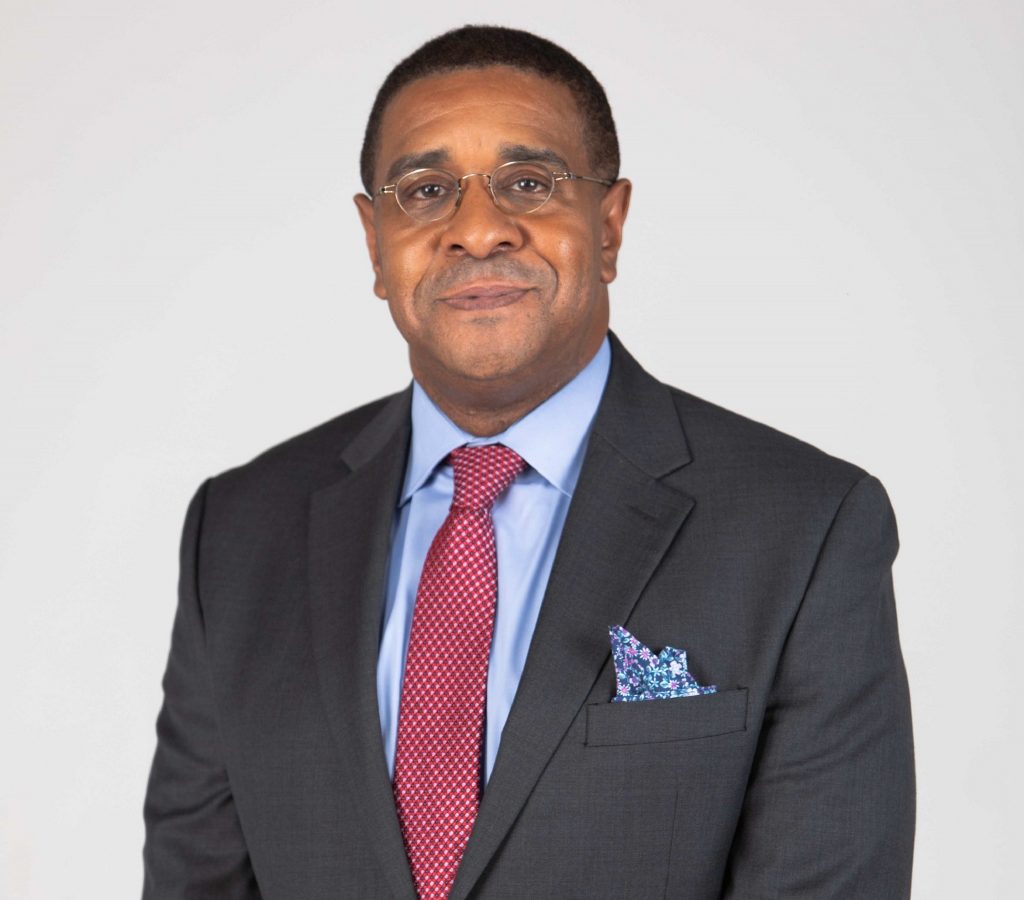
Harold Phillips (He/Him) currently serves as Deputy Director of Programs at NMAC, formerly known as the National Minority AIDS Council.
Prior to joining NMAC, Mr. Phillips served as the Director of the White House Office of National AIDS Policy (ONAP). In this position, he led the effort to set the Administration’s domestic HIV/AIDS priorities. This included monitoring and implementing the National HIV/AIDS Strategy (NHAS), consulting with the Office of Management and Budget, coordinating with others on the Domestic Policy Council, the National Security Council, and the Office of the Global AIDS Coordinator to ensure America’s response to the HIV epidemic was accelerated, comprehensive and reflective of the lived experiences of those at risk of and living with HIV.
Mr. Phillips held prior positions at the Health Resources and Services Administration’s HIV/AIDS Bureau (HRSA/HAB). His work there included serving as Office Director for the Ryan White Program’s AIDS Education and Training Centers (AETC), Special Projects of National Significance (SPNS) and HAB’s work funded by the U.S. President's Emergency Plan for AIDS Relief (PEPFAR). He was the Deputy Director of the Ryan White Part B and AIDS Drug Assistance Programs (ADAP), and worked with Ryan White HIV/AIDS Program recipients, planning councils, providers and patients. He served on the CDC/HRSA AIDS Advisory Committee (CHAC) from 2003 – 2010. He has a Master’s degree in urban and regional planning from the University of North Carolina at Chapel Hill, an undergraduate degree from Kalamazoo College in Michigan and is a person living with HIV.

Sara Zeigler (She/Her) is a public sector executive with over 20 years of experience leading mission-driven community change initiatives. In 2022, Sara founded Courage Forward Strategies – a purpose-driven, women-owned firm providing public health strategy services for organizations committed to advancing health systems, programs, partnerships, and policies. Deeply grounded in equity, Courage Forward Strategies embraces complex and ambiguous challenges, driving strategic processes that move ideas forward to impact. Previously, Sara served as an executive leader at the Centers for Disease Control and Prevention providing policy and program technical assistance and leadership in infectious diseases including HIV, STD, viral hepatitis, and tuberculosis, and non-communicable disease programs. Sara spearheaded critical components of several global emergency responses, including the development of the Zika Action Plan Summit, CDC’s COVID-19 Health Equity Strategy and the National Forum on COVID-19 Vaccine. Sara earned a master’s degree in public administration from the Maxwell School of Public Affairs and Citizenship at Syracuse University and a bachelor’s in leadership studies from the University of Richmond.
Session Designer: FHI 360
As the anti-rights movement continues to grow in influence internationally and domestically, escalating attacks against frontline workers of health and human rights-focused key population programming threaten workers’ physical and mental well-being and progress toward epidemic control. While risks are different in each context, funders have a responsibility to those individuals who make key population programming possible—both formal staff and peer/volunteer workers—to prevent and mitigate attacks on implementers and to respond when attacks occur. In this session, participants will be presented with principles for implementer security that will inform their approaches to this vital component of programming. Case studies from around the world will demonstrate the principles in action and introduce participants to concrete tools and strategies—developed in collaboration with community-led programs supported by PEPFAR, Global Fund, UHAI, Elton John AIDS Foundation, and Viiv Healthcare—to keep frontline workers safe. In addition to fostering greater understanding of individual organization’s areas for growth, the session will include time to discuss opportunities for enhanced coordination across funders, especially in emergencies. All participants will leave with at least one concrete step that they can take as they enhance the security of frontline workers and a vision for moving toward greater physical and mental wellbeing of those at the core of key population programs.
Speakers

Robyn Dayton (She/Her), MPH, is a Senior Technical Advisor with FHI 360. She has twenty years of experience in public health, including developing, implementing, and assessing HIV, reproductive health, and gender-based violence (GBV) programming domestically and across Latin America, the Caribbean, Asia, the Middle East, and Africa. A former secondary school teacher and direct service provider for survivors of GBV, Robyn currently supports the implementation of international HIV programs through mental health care integration efforts and addressing the structural issues that affect service access and quality of life, particularly for key populations most affected by HIV. Robyn leads the portfolio of implementer security at FHI 360—working with diverse PEPFAR- and Global Fund-supported local organizations—to facilitate the wellbeing of those at the heart of key population HIV programming. Robyn is passionate about the intersection of community engagement, human rights, and mental health.

Wanja Ngure (She/Her) is a Kenyan feminist and human rights activist with over two decades of experience in feminism, human rights programming, policy advocacy, and public health. Based in Nairobi, she serves as a Grant Manager at UHAI - the East African Sexual Health and Rights Initiative (UHAI EASHRI), the first indigenous LGBTIQ+ fund in Africa, working with sex workers, LGBTIQ+ communities, and people at the intersections of drug use across seven Eastern African countries.
Wanja has been at the forefront of influencing SRHR funding, leading advocacy with multilateral institutions like the UN, and strengthening protections for marginalized communities in Burundi, Kenya, Rwanda, Tanzania, Uganda, the DRC, and Ethiopia as well as supporting Pan-African work.
A strong advocate for Universal Health Coverage that puts communities at the farthest at the center, and a believer in asset-based community development, Wanja believes in building resilient movements and centering communities in development. Her leadership continues to shape transformative policies and initiatives in SRHR, HIV response, and feminist grantmaking across Africa.

Maria Phelan (She/Her) works as a Senior Technical Advisor, Key Populations in the Community, Rights and Gender Department at The Global Fund. She has held a number of positions for over 15 years in the health and human rights sector, including most recently as Fund Director of the Robert Carr Fund. Where she led on designing and implementing participatory grant making strategies to sustain and strengthen civil society and communities’ roles in the global HIV response.

Sarah Yeiser (She/Her) is a Health Science Specialist on the Key Populations (KP) team in the Office of HIV/AIDS (OHA) in the Global Health Bureau at the US Agency for International Development (USAID). She provides technical leadership and assistance to PEPFAR Key Populations globally with specific focus on Ethiopia, Vietnam, Zambia and Zimbabwe. She began working at the agency in 2015, prior to her tenure at USAID she worked as a registered nurse for 5 years at the University of Kentucky where she also received her MPH.
This fireside chat will discuss the current HIV funding landscape and the role funders will play to ensure continued progress within the HIV movement. The session will focus on the intersections between corporate and community-based funders and opportunities that exist through a pooled funding model.
Speakers

Darwin Thompson currently serves as the Associate Director for Corporate Giving were he manages Gilead’s domestic HIV grant-making. Darwin has more than 10 years of experience working with community-based organizations providing social and support services for marginalized populations. Before Gilead, he served as Executive Director for a community nonprofit organization in Atlanta, Georgia focused on HIV prevention for Black Gay Men, where he provided financial and programmatic oversight as well as developed strategic partnerships and successful programs. He is also trained in several CDC behavioral interventions including Mpowerment, dUP, Couples HIV Counseling and Testing, and Many Men Many Voices (3MV). Before his work in Atlanta, Darwin was Dean of Students within the DC Public Schools system and managed corporate partnerships for a nonprofit specializing in housing and healthcare for homeless populations.
Darwin is a proud graduate of Morehouse College where he earned a BA in Sociology and is also a graduate of the Satcher Community Health Leadership Institute at Morehouse School of Medicine. When he is not working he spends his time refereeing women’s college basketball.

Carmen Villar is an enterprise thinker, creative strategist, and impact obsessed ESG leader. She is currently the Vice President for ESG and Corporate Citizenship at Gilead Sciences, where she oversees Gilead’s ESG strategy and leads corporate giving as well as the philanthropic work of the Gilead Foundation. Together, with her team, they are developing the vision and strategy to accelerate progress in the years ahead, working closely with partners to ensure the company’s efforts are impactful and drive transformational change.
Carmen’s extensive experience working both for the US Government and in the private sector has helped her truly appreciate the power created when multiple sectors come together to help solve difficult health challenges. She has worked hard to create public/private partnerships to advance health equity and elevate the intersection of both social and business impact.
Carmen has worked in both Nigeria and Zambia, providing leadership and oversight of HIV prevention, care and treatment programs, as part of the President’s Emergency Plan for AIDS Relief (PEPFAR) and is a recipient of the Presidential Meritorious Rank Award.
Understanding that service is small part of supporting our collective community, Ms. Villar shares her time with both the NJ Performing Arts Center (NJPAC) and National Medical Fellowships (NMF), as a member of their boards of directors. Carmen obtained her BA and MSW at UC Berkeley and enjoys traveling with her son and husband in her spare time.

Felicia Wong (She/Her), Fund Director at the Robert Carr Fund, brings over 20 years of experience working on policy, advocacy, programming, technical support, fundraising and management - with a focus on HIV, sexual and reproductive health and rights (SRHR), and a strong background in community engagement. She has a specific interest in cross-sector integration and partnerships for accelerating health equity and human rights.
Felicia worked at Frontline AIDS (formerly the International HIV/AIDS Alliance) in a variety of roles, including Head of the Innovation Team and member of the Senior Leadership Team.
Felicia’s work is informed by her family’s immigration journey, her experience as a woman of color and anti-racism activist, LGBTQ+ ally and working directly with communities to design and implement community-based HIV and health programs.
Join your colleagues for a guided painting party hosted by ArtJamz. We will paint a piece inspired by the preeminent artist, philanthropist, and HIV activist Keith Haring. Please note, we will only be able to accomodate 50 attendees. If you are interested, please sign up at the check-in desk.
Calling all FCAA Summit attendees who have a passion for sexual liberation! Funders for LGBTQ Issues, FCAA, and the Freeman Foundation invite you to join us for an evening meet-up at the Green Lantern. Mingle with other funders for drinks and casual conversations about how sexual liberation connects – or sometimes fails to connect – with our professional life and our grantmaking. Funders for LGBTQ Issues is offering limited drink tickets, so be sure to arrive early! No formal program or speeches – just a chance to get to know other funders and chat about sexual liberation over a drink at our local gay bar (just a few short blocks walk from the hotel).
Session Designers: Aidsfonds, Robert Carr Fund, Stephen Lewis Foundation
Community-led decision making, participatory grantmaking, trust-based philanthropy, Southern leadership, locally led development, anti-colonial funding—these are all different ways funders talk about shifting power and funding to the community level. What are the underlying principles and values of these approaches and how can they inform a more effective and impactful HIV response? This session will explore the importance of decolonizing HIV funding and the specific things funders can do to make their funding work better for the communities they seek to serve. Regardless of where your organization is in the decolonizing/shifting power journey, this session will encourage you to think more deeply about the challenges and opportunities that exist for you.
Speakers

Edwin J Bernard (He/Him) is the founding executive director of the HIV Justice Network, the leading community-based NGO building a co-ordinated, effective global response to punitive laws and policies that impact people living with HIV in all their diversities.
He is also the global co-ordinator of the 16-member HIV JUSTICE WORLDWIDE coalition – supported by over 100 civil society organisations – an international coalition of civil society organisations working to end HIV criminalisation.
A former editor at NAM/aidsmap.com, he also previously worked as a policy consultant for UNAIDS, the International AIDS Society (IAS) and the Global Network of People Living with HIV (GNP+), amongst others.
Edwin has been contributing to global knowledge of, and advocacy against, HIV criminalisation for the past two decades. He has written two books on the subject and also authored or co-authored numerous publications about HIV criminalisation and related science, policy and human rights issues, including HJN’s own Advancing HIV Justice series.
Edwin was born in the UK and is now based in the Netherlands. He acquired HIV in 1983 at the age of 21.
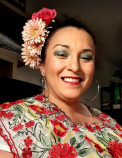
Erika Castellanos is a trans woman living with HIV from Belize, now residing in the Netherlands. A social worker by profession, Erika joined GATE in 2017 as Director of Programs and is currently the Executive Director of GATE since January 1st, 2023. Erika started her activism working on sex work issues and HIV. She founded the first network of people living with HIV in Belize and co-founded the national trans organization of the country. Since then, Erika has contributed and been active on regional networks: REDCA+, REDLA+, CRN+, and REDLACTRANS and became the vice chair of GNP+ in 2015. In 2015 she also joined the UNAIDS PCB as the LAC delegate and, in 2017, became the first trans person to be elected as a member of the board of the Global Fund as a Board Member for the Communities Delegation. Erika was diagnosed with HIV+ in 1995 and has worked on issues related to HIV, health, human rights, and gender. Erika is happily married and lives with her husband, 2 children, and two amazing dogs.

Dr. Tetiana Deshko (She/Her) is the Director of International Programs at Alliance for Public Health Ukraine, and holds a PhD in social sciences and an MBA in general management. She has been dedicated to HIV/AIDS work since 2001. Dr. Deshko led the development and implementation of a national HIV/AIDS program targeting key populations, reaching over 250,000 people annually. This program significantly contributed to a decline in new infections and is recognized as a model for Eastern Europe and Central Asia, exemplifying best practices in addressing concentrated HIV epidemics. Dr. Deshko has extensive experience managing international and multi-country projects across Eastern Europe, Asia, and East Africa. She facilitated the initiation and expansion of PrEP programs in Southeast Europe and in Ukraine advocating for the introduction of CAB-LA as PrEP in 2024. Dr. Deshko also spearheaded Ukraine's first Hepatitis C treatment program for people who use drugs and is now developing models of care for Hepatitis C for people who use drugs in a UNITAID study in Egypt, Kyrgyzstan and Nigeria. She became involved into humanitarian work after the war in Ukraine started and supported critical program innovations to enable program continuity for people with HIV and key populations, including cross-border support, digital solutions, and long-acting prevention products.

Tushar Malik (He/Him) serves as a Project Lead and Advocacy Officer at Aidsfonds Soa Aids Nederland, a Dutch nonprofit and funder that also works internationally. He currently oversees a pilot project on 100% community-led decision-making with Indonesian LGBTQI+ youth and young people living with HIV (YPLHIV). Additionally, he works on advocacy efforts targeting the European Union.
Tushar brings with him over 13 years of experience from the international HIV and LGBTIQ+ rights spheres, having started his career at the grassroots in India and Southeast Asia, and subsequently working globally with grassroots communities, nonprofits and international organizations. Throughout his career, he has advocated for LGBTIQ+ inclusion at the intersections of human rights, public health policy, and international development. He is passionate about bringing the voices and experiences of the most marginalized among LGBTIQ+ communities, especially youth, to the forefront of international policy making, and has dedicated his career to bridging gaps between the grassroots and policy makers.

Leah Teklemariam is the Director of Programs at the Stephen Lewis Foundation (SLF), based in Toronto, Canada. The SLF champions health and human rights with community-led partners responding to the HIV epidemic in Africa. As Director of Programs, Leah provides strategic direction to the SLF’s project portfolio of community-led initiatives in 14 African countries. Leah has well over 20 years of experience working in the struggle against HIV in Africa, and in pursuit of women’s rights globally. Leah has also worked internationally as an independent consultant with a wide range of NGOs, large-scale funding agencies, educational institutions and global leaders, including a secondment to assist the establishment of the Graça Machel Trust in Johannesburg, South Africa, an organization that promotes the rights of women and children and aims to strengthen systems of democracy and governance across the African region.
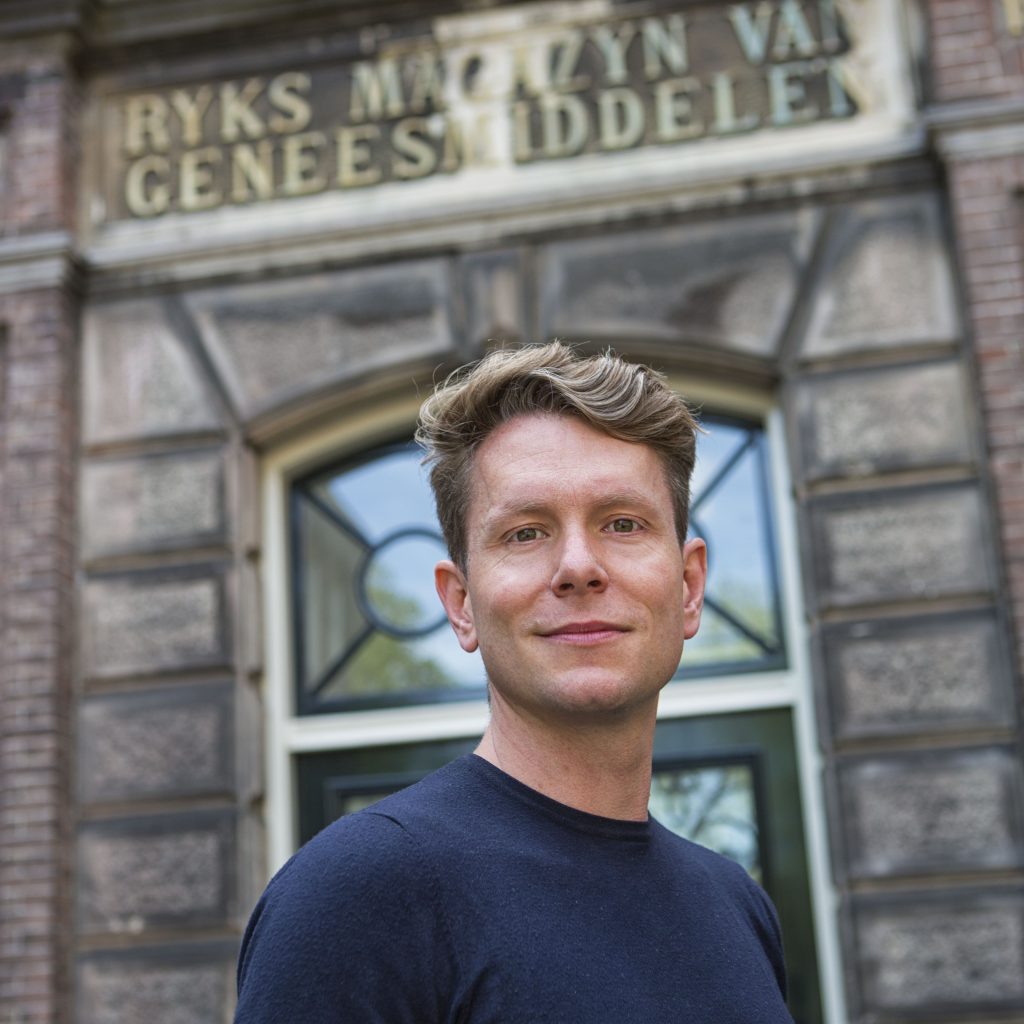
Mark Vermeulen is the Executive Director of Aidsfonds. He started his career at the Dutch NGO Evert Vermeer Foundation and worked as part of the United Nations Development Programme (UNDP). Mark brings with him 10 years of experience in the (international) fight against AIDS and STDs. Having lived with HIV since 2007, Mark has a strong personal commitment to the movement that aims to put an end to AIDS. Over the years, he has openly discussed his HIV status, with the intention of reducing stigma and contributing to a better understanding of HIV in the Netherlands. Mark has held several positions at Aidsfonds – Soa Aids Nederland. Starting as a lobbyist, he played a key role in keeping HIV and AIDS on the Dutch development agenda in 2010. Later on, he contributed to the rollout of Aidsfonds’ international sex work programme. As Programme Manager, he had a leading role in the international human rights programme Bridging the Gaps. As from 2015, this is the largest programme worldwide committed to improving the health and rights of key populations in the fight against AIDS. In his new role as director, Mark Vermeulen is responsible for the ambitious strategic repositioning of Aidsfonds – Soa Aids Nederland. He currently serves as the Vice Chair of the Funders Concerned About AIDS Board of Directors. In addition, Mark has an MBA from Erasmus University; the Rotterdam School of Management, and holds a Master in Political Science and American Studies at the University of Amsterdam (UvA).

Morgan (Mo) Willis (She/They) is a Black, nonbinary, queer, writer, traveler, and community collaborator who dreams big. For close to 15 years, Morgan has worked with community projects and organizations to gather and strengthen their networks, build and share resources that sustain us, and to create programs and structures that move us toward collective liberation, and currently serves as the Co-Director of the Third Wave Fund. Between 2012 and 2018, Mo produced the Allied Media Conference in Detroit. Since leaving AMP, she has worked with dozens of organizations to build teams, lead dynamic gatherings, design programs and giving funds, train and support emerging leaders, build resilient infrastructures and expand people’s capacity for social transformation. Morgan’s work has been featured in: Emergent Strategy: Shaping Change, Shaping Worlds, The SAGE Handbook of Social Constructionist Theory and other publications. She is the editor of Outside the XY: Queer Black and Brown Masculinity, a Lambda Literary Award nominated anthology created by bklyn boihood. They’ve been featured on NBC, Michigan Radio and more.

Felicia Wong (She/Her), Fund Director at the Robert Carr Fund, brings over 20 years of experience working on policy, advocacy, programming, technical support, fundraising and management - with a focus on HIV, sexual and reproductive health and rights (SRHR), and a strong background in community engagement. She has a specific interest in cross-sector integration and partnerships for accelerating health equity and human rights.
Felicia worked at Frontline AIDS (formerly the International HIV/AIDS Alliance) in a variety of roles, including Head of the Innovation Team and member of the Senior Leadership Team.
Felicia’s work is informed by her family’s immigration journey, her experience as a woman of color and anti-racism activist, LGBTQ+ ally and working directly with communities to design and implement community-based HIV and health programs.
Session Designer: Coalition for Children Affected by AIDS
For the first time, we now know precisely where the global funding gaps are for children, adolescents and caregivers affected by HIV. We also know how much private philanthropy is spent on them and on what. This session is an opportunity to hear about this new evidence and discuss how philanthropists can consciously target catalytic investments that will bring about broader improvements for children, adolescents and caregivers everywhere. This workshop will focus on two new pieces of evidence:
• An analysis of philanthropic funding for children and youth, co-created by Funders Concerned About AIDS and the Coalition.
• A new report and advocacy briefing analysing expenditures, needs and resource gaps for children and adolescents affected by HIV in all LMICs globally, in Sub Saharan Africa and in detail in Kenya, Uganda and Cameroon. This was led by the Coalition in partnership with WHO, UNICEF, UNAIDS, and Avenir Health, the governments of Kenya, Uganda and Cameroon, the Global Working Group on Financing for Children and Adolescents Affected by HIV, which include PEPFAR and the Global Fund, community champions from across Africa, and private trusts and foundations.
Now is the ideal time to have this discussion, not least because of the political momentum created by the Global Alliance to End AIDS in Children, new commitments to maternal and child health at the World Health Assembly, and new commitments to children made at the 55th UNAIDS PCB meeting just prior to the FCAA Summit.
Speakers

Catherine Connor (She/Her) is Vice President of Public Policy and Advocacy at the Elizabeth Glaser Pediatric AIDS Foundation (EGPAF). Ms. Connor leads the Foundation’s U.S. and multilateral advocacy engagement on global health issues, including policies related to maternal and pediatric HIV/AIDS and TB programs. She also manages the Foundation’s global advocacy portfolio, working with field staff to advocate for the elimination of pediatric HIV and AIDS. Ms. Connor is Co-chair of the Coalition for Children Affected by AIDS (CCABA) and serves as the Alternate Board Member for the Developed Country NGO Delegation to the Global Fund to Fight HIV, TB and Malaria. Prior to joining the Foundation, Ms. Connor worked as a lawyer and lobbyist specializing in U.S. health care law and public policy.

Meg French (She/Her) is a proven leader and passionate human rights advocate, with a deep commitment to social justice. Meg is the Executive Director of the Stephen Lewis Foundation, a dynamic, collaborative, feminist organization with an unwavering commitment to supporting grassroots organizations across Africa in countries hardest hit by the HIV epidemic.
Before joining the Stephen Lewis Foundation, Meg worked with UNICEF, the United Nations Children Fund, for 17 years to protect and promote children’s rights. Most recently she was based in Geneva, leading the organization’s global campaign to improve maternal and newborn health. Before moving to Geneva in 2017, Meg was Chief Program Officer at UNICEF Canada. There she led communications and programmatic work, and advocacy efforts with the Government of Canada. Under her leadership, UNICEF Canada also launched the One Youth Initiative to improve child and youth wellbeing in Canada.
Early in her career, Meg was a high school teacher in Canada and the Marshall Islands. She holds degrees from Trent University and the University of Toronto. Meg lives in Toronto with her husband and two teenage children.
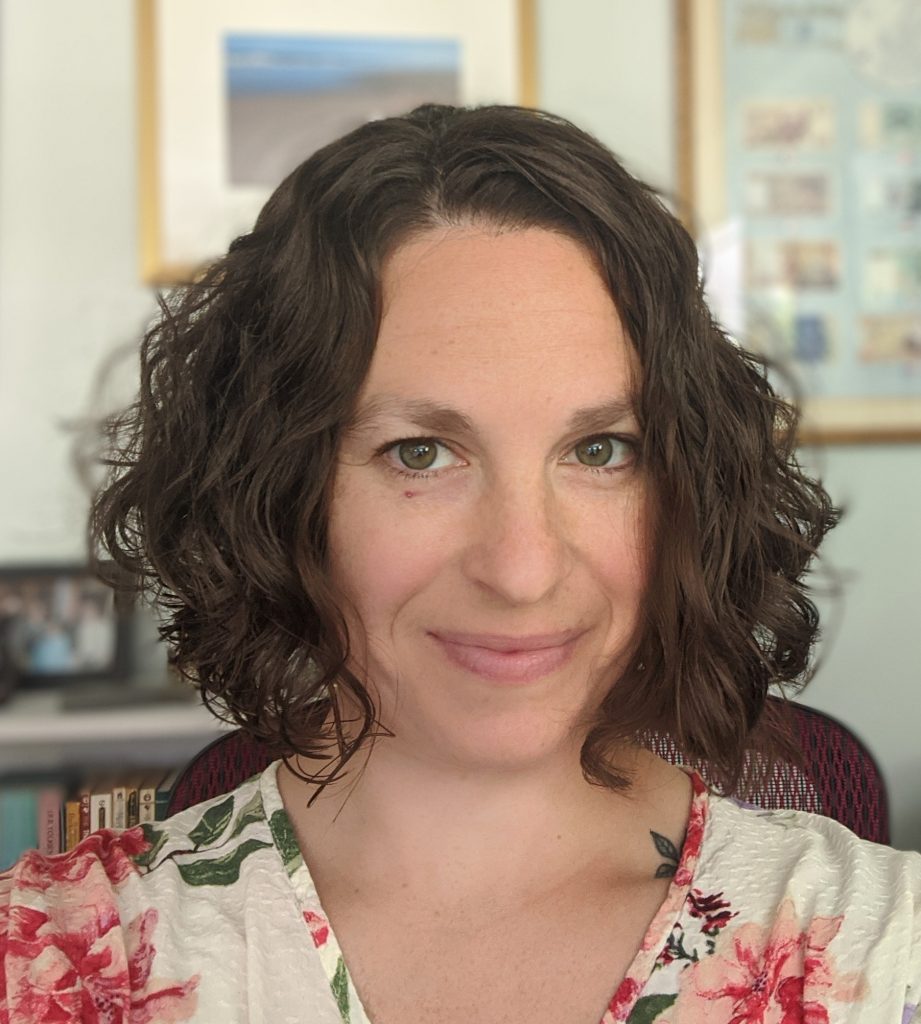
Caterina (Cat) Gironda (She/Her) is the Director of Research at Funders Concerned About AIDS (FCAA) where she manages their annual resource tracking project, mapping the landscape of philanthropic support to address HIV/AIDS. During Cat’s tenure with FCAA she has helped to grow their research department and modernize their data collection, security, and analysis capabilities. Her work has helped to integrate FCAA’s research into all programmatic facets and make their data useful and accessible to members and other stakeholders. Prior to that, Cat worked at North Carolina State University in the Gender & Sexuality field. Her previous work at nonprofits and philanthropy includes stretches at Girl Rising and the Third Wave Fund, as well as early work in HIV/STI prevention education. Cat received her master’s degree in Women’s, Gender, and Sexuality Studies from the CUNY Graduate Center in New York.

Miriam Hasasha (She/Her) is the Young Mother Ambassador to the Coalition for Children Affected by AIDS. Miriam is from Uganda and has two young boys. She is a very active champion for young mothers and young fathers and their children in her own country and around the world. As well as advocating via the Coalition since 2018, Miriam is a Mentor Mother with Teens Uganda and part of UNYPA. You can watch Miriam talking about financing and young mothers here as well as several other videos.

Luann Hatane (She/Her) is the Executive Director at PATA (Paediatric – Adolescent Treatment Africa) with a background in social work and a master’s degree in development studies. She has extensive experience in leadership roles within national and regional organisations serving as a programme manager, capacity builder, rights defender, and civil society advocate. As co-chair of the Coalition for Children Affected by AIDS and an active member of global / regional working groups, Luann has contributed significantly to papers, briefs, and tools that shape policy and practice in the HIV response with a strong passion in facilitating southern led linking and learning exchange for frontline healthcare providers.

Charles “Chip” Lyons (He/Him) is President and Chief Executive Officer of the Elizabeth Glaser Pediatric AIDS Foundation (EGPAF). Since taking on the role in 2010, Lyons has led the foundation through significant changes to its programmatic trajectory and advocacy portfolio of work transitioning it from several centrally managed, global awards to implementing a broad range of bilateral awards in a dozen countries. During his tenure, EGPAF launched a local affiliate model of partnership with national organizations in Tanzania, Mozambique and Cote d’Ivoire. He provided leadership to catalyze global partnership action through “The Global Plan Towards the Elimination of New HIV Infections Among Children by 2015.” A longtime advocate for children's health and development, Lyons joined EGPAF after decades of managing and developing programs for global organizations including UNICEF and the Bill and Melinda Gates Foundation. He served as a member of the Human Rights Watch Health and Human Rights Advisory Committee, worked to develop the Global Alliance for Vaccines and Immunization (GAVI), and served as the U.S. Representative to the Executive Board of UNICEF appointed by President Obama.

Nicola Willis is the founder and executive director of Zvandiri, based in Harare, Zimbabwe. Zvandiri trains young people living with HIV as peer counsellors and connects them with other young people with HIV to support them to survive and thrive. Zvandiri supports governments to integrate, scale, and sustain this model. 14 countries have adopted the model to date. Nicola is the co-Chair of WHO's Adolescent Service Delivery Technical Working Group. She has an MPhil in Public Mental health and is completing her Phd which has focused on integrating mental health in the treatment and care of adolescents living with HIV.

Felicia Wong (She/Her), Fund Director at the Robert Carr Fund, brings over 20 years of experience working on policy, advocacy, programming, technical support, fundraising and management - with a focus on HIV, sexual and reproductive health and rights (SRHR), and a strong background in community engagement. She has a specific interest in cross-sector integration and partnerships for accelerating health equity and human rights.
Felicia worked at Frontline AIDS (formerly the International HIV/AIDS Alliance) in a variety of roles, including Head of the Innovation Team and member of the Senior Leadership Team.
Felicia’s work is informed by her family’s immigration journey, her experience as a woman of color and anti-racism activist, LGBTQ+ ally and working directly with communities to design and implement community-based HIV and health programs.
Session Designer: MPact Global Action for Gay Men’s Health and Rights
Over the last two years, MPact has seeded a new network of Gay, Bi, Queer, MSM from five countries across Africa. The goal is to build a new regional network of organizations that mobilizes resources and fosters cooperation across borders to advance LGBTQ+ rights on the continent. The founders of the network came together because they saw an urgent need to ensure communities are resourced to be at the table in advancing a dynamic, visionary, and impactful African LGBTQ+ rights movement. On this panel, you will hear directly from leaders from three different countries as well as MPact’s Executive Director. Each the panelists leads an organization in their respective countries and are working on the frontlines of the HIV response and LGBTQ+ rights movement, including efforts to turn the tide on the criminalization of same-sex behavior. They will share crucial insights from their years of engaging the Global Fund and other multi-laterals as well as their struggles to resource their organizations to engage in frontline advocacy from decriminalization. We expect audience members to come away with a deeper appreciation for the role of GBMSM grassroots organizing in the LGBTQ+ rights movement and tangible ways funders can support GBMSM organizations.
Speakers

Alex Kofi Donkor (He/Him) is a Humanist, Activist, Researcher, Campaigner, and Community Builder with expertise in Sexual Health, and LGBTQ+ Rights Activism in Ghana. Kofi is the founder and current director of LGBT+ Rights Ghana, an organisation that is championing a safe, inclusive, and free society for LGBTQI+ persons in Ghana. He served as Project Manager for Priorities on Rights and Sexual Health and has worked on several research studies in the field of HIV/AIDS among gay, bisexual men, and men who have sex with men (MSM), such as the Ghana Men Study II, Stigma Study, C5 Study and JSI-USAID Care Continuum Project. He is an out-spoken LGBTQI Activist and has engaged with the media for social change on issues impacting the LGBTQI community, specifically in Africa and Ghana. An experienced media representative, Kofi has appeared on many International Television stations including CNN, BBC, DW TV, Bloomberg, and other media platforms. He has been a guest speaker of renowned universities like Princeton University and Columbia University. In July 2021 he was listed in Vogue Magazine as one of seven activists fighting to improve LGBTQ+ Rights Across Africa and in December of 2021 Kofi was again selected as African of the year by The Continent. Kofi is a board member of IMARAA and an alumnus of the University for Development Studies, Tamale.

Allan Mwasa (They/Them) is a Clinical Psychologist and Strategic Initiatives Executive at Sexual Minorities Uganda (SMUG). With a Bachelor’s Degree in Community Psychology and a Master of Science in Clinical and Health Psychology, Allan brings a wealth of expertise in applying psychological principles to advance health equity and champion LGBTIQ+ rights in Uganda.
At SMUG, Allan leads transformative programs that enhance Availability, Accessibility, Acceptability, and Quality of HIV/TB services for key populations. They manage HIV-focused initiatives that monitor over 320 public health facilities and 50 key population drop-in centers supported by PEPFAR, analyzing barriers and enablers to HIV/TB services. The data-driven insights inform advocacy efforts, empowering civil society to drive policy change and hold the government accountable for equitable healthcare access.
Allan is a key advocate for mental health access, developing and implementing culturally tailored interventions to address the mental health needs of Uganda’s LGBTIQ+ community. They oversee therapy initiatives tailored to the local context, blending innovative approaches with evidence-based psychological theories.
Allan fosters leadership within the LGBTIQ+ movement and helps sustain its legacy in Uganda by co-coordinating the Quchu Leadership Academy. This yearlong fellowship program connects experienced LGBTIQ+ leaders with emerging young activists, providing mentorship and guidance to strengthen the next generation of LGBTIQ+ leaders in Uganda.

Roberto Paulo (He/Him) is a Mozambican individual aged 45, with a degree in Psychology and Pedagogic, and is currently the Executive Director of LAMBDA – (the Mozambican Association for Sexual Minorities Defense), an organization whose aim is to promote and defend the rights of the LGBTIQ+ community. Since 2001, he has been involved in activism to combat HIV and AIDS, and from 2006, he became part of the national team of trainers trained and accredited by RFSU from Sweden, on Gender and HIV. Since then, he has been carrying out trainings in all of the provinces of Mozambique, where he has trained activists and other players. About gender focusing gender identity and sexual orientation.
Before joining Lambda, Roberto Paulo worked for the Mozambican Network of AIDS Services Organizations (MONASO), where he performed various roles from Provincial Coordinator, National Capacity Building Officer, and National Lobby and Advocacy Officer.
His professional career is characterized by activism around the promotion of human rights from different perspectives, with emphasis to gender equity, sexual and reproductive health, as well as the rights of Key Populations and LGBTIQ+ people, and hence his current work includes leading various initiatives to influence the drafting of policies, laws and guidelines in the country that contribute for the establishment of a conducive environment for the exercise of freedoms and enjoyment of the rights of marginalized groups in their access to different services, free from any sort of discrimination.
Since 2015, he has been part of the international team of trainers trained and accredited by Health Policy Project on SOGIE (Sexual Orientation, Gender Identity and Expression), and has been the only representative of PALOP (native Portuguese countries), and has since conducted several trainings for public service providers (i.e. teachers, police officers, health professionals, activists, as well as civil servants), as well as US government partners in Mozambique and Angola.
Roberto Paulo is a member and collaborator of different national and regional coordination platforms, including the MCP (Country Coordination Mechanism from the Global Fund) in representation of Key Population, a member of the Coordinating Committee from the Network of organizations working to promote and defend Sexual and Reproductive Rights, a member of the Global HIV Prevention Coalition, a member of Frontline AIDS Partners Forum, and a founding member of GBMSM (Gay, Bisexual and Men who have sex with other men).

A longtime HIV activist, Andrew Spieldenner (He/Him) is the Executive Director of MPact Global Action for Gay Men’s Health and Rights and currently serves as vice-chair of the United States People living with HIV Caucus and as the North American Delegate to the UNAIDS Program Coordinating Board. Dr. Spieldenner has worked as a nonprofit leader and an academic professor for nearly a decade, focusing his research on the intersection of health and intercultural communication surrounding HIV and the LGBTQ community.
Session Designer: Transgender Strategy Center
While many funders have a commitment to supporting TGNC leadership both within their organization and in their grantmaking, it can be a struggle to fully operationalize these values. Philanthropic organizations may not know how to find or retain TGNC talent, and grantmaking practices may not be in the strongest alignment with key findings about the needs of community-based TGNC-led organizations. This session presents a comprehensive overview of how funders can operationalize and enhance their commitment to TGNC leadership within their organizations and programming. Attendees will have the opportunity to hear case studies and success stories, as well as to learn from new data, such as the TGNC Families Think Tank report, and will leave with actionable ideas that they can implement in their work moving forward.
Speakers

Rachel L. Campbell (She/Her) has worked in Business Planning and Workforce Management for over 23 years. Hailing from Hagerstown, Maryland, Rachel attended the University of Maryland Global Campus, obtaining a Bachelor of Science in Management Studies. Rachel moved on to Georgetown University where in 2021, she obtained a Master of Professional Studies in Urban and Regional Planning. Rachel has worked with the Transgender Strategy Center (TSC) for two years, first in a coach capacity and then as of 2024 as a Project Lead for governmental programs.
Rachel has worked in financial technology, government services, and technology start up industries. Rachel has held positions in capacity management, real time contact center management, workforce management scheduling, project management, standard operating procedure creation, strategic planning, and government contract management. In addition, Rachel has worked to foster the development of future leaders within the private and non- profit sectors.
Rachel belongs to two non-profit organizations in the greater Washington D.C. area where she lives. Rachel is a fierce advocate for the transgender community, especially making sure transgender people have access to name and gender identity documents. Rachel loves to learn and is always looking for what is the next new thing.

Finn Schubert, MPH (He/Him) has over 15 years of experience working in LGBTQ+ health, sexual and reproductive health, and HIV care and prevention. Most recently, Finn has overseen the expansion of LGBTQ+ health services for the largest hospital and licensed nursing home in New Jersey. Finn also works as a consultant with an emphasis on building accountable services and partnerships between healthcare facilities and the LGBTQ+ community and as a capacity coach with the Transgender Strategy Center. In previous roles, Finn managed multimillion dollar initiatives in HIV care and prevention and rolled out national funding and capacity development initiatives aimed at improving access to reproductive health services in rural community health centers. He has over a dozen peer-reviewed publications in medical and public health journals, and has lectured on trans health at many major medical centers. Finn is passionate about writing and storytelling as a means of liberation. His second essay collection, There Are No Rules for a Pregnant Trans Body, will come out in late 2024.

Nala is a passionate visionary and advocate whose journey is defined by resilience and empowerment. With a degree in Fashion Design and a Cosmetology license, her creative spirit shines brightly. However, her life took a pivotal turn in 2013 when she lost a dear friend to transphobia in Harlem. This heartbreaking experience ignited a fire within her to combat racial and gender-based violence, as she transformed her grief into a powerful force for change. As a Black woman of trans experience, Nala channels her intersecting identities into a mission of healing for BIPOC (Black, Indigenous, People of Color) and LGBTQ communities.
Throughout her career, Nala has dedicated herself to creating spaces that uplift trans women, particularly those who are Black and immigrants of color. In her impactful roles as Advocacy Coordinator, Executive Director, and Council Co-Chair, she has worked tirelessly to expand access to gender-affirming healthcare and services. Nala challenges outdated notions of inclusivity and diversity, advocating for true gender, racial, and economic equity on a global scale.
Her extensive experience in policy and advocacy includes serving as Co-Chair of the Young Women Advisory Council under Speaker Melissa Mark-Viverito and the NYC Council. In this role, she helped launch the #SheWillBe campaign, ensuring that the voices of diverse young girls were heard. Nala also co-programmed at Girls for Gender Equity until August 2018, where she facilitated empowering groups for cisgender and transgender girls and gender non-conforming individuals aged 13-24, focusing on government policy, media literacy, and philanthropy.
Nala’s nearly ten years at Callen-Lorde Community Health Center, as the Coordinator of Advocacy & Engagement involved lobbying for LGBT policymaking and supporting those living with HIV/AIDS. Her expertise led her to serve as an advisor to the White House on HIV strategy in 2016. Additionally, she engages organizations as a coach and consultant, promoting deep commitments to gender and racial equity through training, facilitation, and conflict mediation.
Currently, Nala is the Director of Programs and Advocacy at the Marsha P. Johnson Institute (MPJI), where she provides strategic leadership to protect and defend the human rights of Black transgender individuals. MPJI actively seeks to eradicate systemic violence and offers vital resources related to housing, food security, legal aid, health and wellness, and more.
In 2018, she founded Reuniting of African Descendants (ROAD) , a trans-led grassroots initiative aimed at fostering equity, collective growth, and healing for TLGBQIA+/SGL individuals of African descent. ROAD’s work is rooted to ending violence against trans and queer people and has pioneered groundbreaking initiatives such as a mutual aid fund for Black trans and queer individuals globally. Notably, in September 2020, ROAD secured half an acre of land for trans women in Uganda to support their livelihoods during the COVID-19 pandemic—an unprecedented achievement for a Black transgender woman.
Beyond her advocacy work, Nala finds grounding in her faith as a minister-in-training at Rivers of Living Water NY United Church of Christ. She is also the Co-Director of the FLOW (Fluid Lovers of Worship) Ministry, where she fosters an inclusive spiritual environment, welcoming all across the gender spectrum to worship God (He/She/They) in spirit and truth, embracing their authentic selves.
Nala’s unwavering commitment to justice, healing, and community empowerment makes her a true beacon of hope in the fight for equity.
As safety and security concerns grow in the U.S.’s shifting political landscape, we are offering a dedicated space for donors to discuss how to help protect their institutions and grantees. Beirne Roose-Snyder, an expert in human rights and security strategies, will be available for five individualized 15-minute consultations to address specific questions and provide tailored guidance.
These one-on-one sessions are designed to help donors identify potential risks, explore proactive measures, and strengthen protections for their organizations and partners. Given the rising threats facing grantees, particularly those in human rights and HIV-related work, this is an opportunity to gain critical insights and actionable strategies.
Consultations must be reserved in advance—sign up early at the check-in desk to secure your spot and make the most of this unique offering.
Presented by: The Southern AIDS Coalition
The Southern United States is disproportionately impacted by HIV and related societal disparities. The region also holds a deep history of activism and innovative disruption. In this critical moment, how can funders support community-driven efforts to combat harmful discriminatory policies, protect critical health services, and build leadership in the face of political uncertainty and long-held systemic inequities?
During this session, southern leaders will share successes and opportunities for an HIV response that is equipped with the resources to face tangible threats to communities most impacted by HIV. Through interactive presentations, attendees will explore strategies for funding efforts in the South that are responsive to various social and political determinants of health.
Speakers

Kia Colbert (She/Her) is the Center Director for the Emory COMPASS Center, where she oversees the development and management of the Coordinating Center’s programs, community investment opportunities, communications implementation, dissemination, and evaluation. She is also the Administrative Director for the Coordinating Center Collaborative, providing strategic oversight in the field of Public Health for more than 12 years. Kia is a passionate advocate for health equity and has been a champion for change in HIV capacity building for community organizations, particularly as an intermediary funder for HIV prevention and organizational development over the past 7 years. In her previous leadership roles, Kia has coordinated multi-site international programs, leading research and training efforts, partnership development, community engagement, program planning, implementation, and evaluation. Kia holds a Master’s in Public Health and is also certified as a Health Education Specialist.

Judith Montenegro (She/Ella) joined the Latino Commission on AIDS and their Latinos in the South program in 2013 as their Director of Community Organizing and in 2016, she became the Program Director. As a Mexican immigrant living in North Carolina, Judith is passionate about working with immigrant populations focusing on immigration reform, LGBTQ rights, and improving health care access for Latine communities.
She has served on the boards of directors of the American Heart Association, Durham Central Park, Alianza Americas, and El Centro Hispano. She is currently a board member of El Vinculo Hispano, Community Access National Network, and the University of North Carolina at Chapel Hill Carolina Latinx Center's Board. She currently lives in Pittsboro, North Carolina.

S. Mandisa Moore-O’Neal (She/Her) is a Black feminist civil rights attorney, a trained facilitator, and a cultural and political strategist based in New Orleans. Prior to joining The Center for HIV Law and Policy (CHLP) as Executive Director, she founded The Moore-O’Neal Law Group, a law and policy practice focused on litigation, education, and advocacy on HIV decriminalization, family law, employment and public accommodations discrimination, and police accountability issues. At its core, her legal work is best defined as using a Black feminist and abolitionist framework to craft legal strategies that move us closer to liberation. Mandisa is a founding member of the Louisiana Coalition on Criminalization and Health.
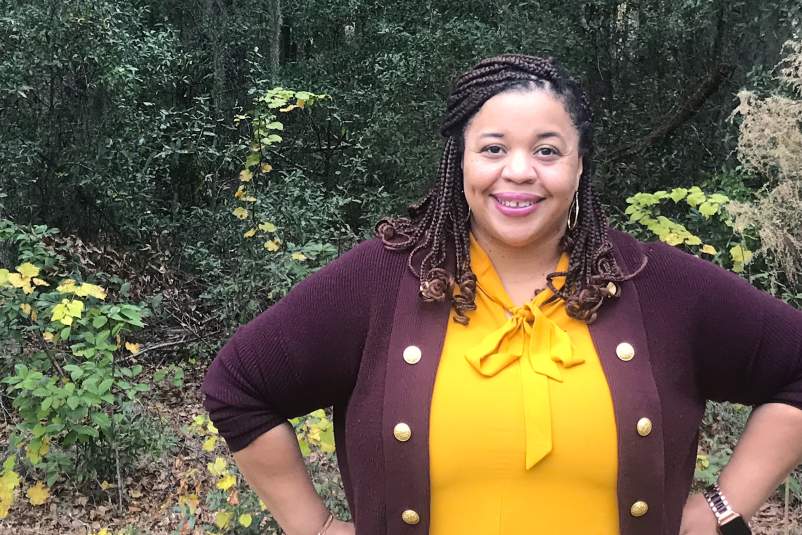
Dafina Ward is an expert in program and organizational development, with a focus on community health initiatives. She currently serves as Executive Director of the Southern AIDS Coalition (SAC). Founded in 2001, SAC is committed to ending the disproportionate impact of HIV and STIs on southern communities through advocacy and programming that centers the experiences of those most impacted.
A self-described “recovering attorney”—she is also a grant writer, speaker and trainer who utilizes her legal training and negotiation skills to build collaborations through problem solving and strategic engagement to build impactful and sustainable programs. With over a dozen years of experience addressing the southern HIV epidemic, Dafina works to end siloed approaches to transformation, through thoughtful partnerships and meaningful relationships. As an experienced non-profit remote manager, she coaches leaders in areas of "trauma informed" supervision and remote organization process development. She has shared her strategies with organizational leaders during the COVID-19 pandemic through webinars hosted by Emory University and the Professional Association of Social Workers in HIV/AIDS. Dafina is also a writer whose work has been published in The Washington Post, The Lily and Role Reboot. She enjoys sharing her experiences with students as an Adjunct Professor in Nonprofit Management at the University of South Carolina. Dafina received her BA from Clark Atlanta University (Atlanta, GA) and her Juris Doctor from Temple University’s Beasley School of Law (Philadelphia, PA). She and her husband, Ahmad, reside in the Lowcountry of South Carolina with their two brilliant daughters.
Session Designer: The Global Fund
The 2023 UNAIDS Global AIDS Update is clear: enabling community-led responses is key to ending AIDS . Global AIDS Strategy 2021-2026 prioritizes “empowered, resourced and integrated community-led HIV responses”. The Global Fund to Fight HIV, TB and Malaria places communities at the center of its 2023-2028 strategy and elevates community leadership in planning, implementing, and monitoring HIV programs.
However, community-led organizations can not fulfill this critical role if they remain underfunded and undercapacitated. Funding for community-led efforts continues to be inadequate. Where funding is available, it focuses on implementation, at the expense of building critical community infrastructure: investing in organizational and technical capacity, leadership, networks, and contingency planning.
A recent consultation with community partners, organized by PEPFAR, showed that, the demand for capacity building opportunities is high, and specifically for capacity building that is community-driven (as opposed to donor-driven); not conditional on implementation funding, and prioritizes peer-to-peer learning and local expertise.
This session will showcase capacity building initiatives and modalities that meet communities needs and will engage donors, community partners, and other stakeholders in a strategic discussion on capacity building for CLOs “on their own terms”, particularly in the current context of funding and political uncertainty.
Speakers

John Plastow (He/Him) has been involved in international development and humanitarian action for more than three decades. In this time, he has worked for a number of major international organizations across a range of contexts, including time spent based in different parts of sub-Saharan Africa, South Asia and the Middle East as well as in Europe. He has worked at a senior level for a number of large international NGOs including Oxfam and CARE International. He has held roles as Country Director, Regional Director and in his last role, prior to joining Frontline AIDS, he was Oxfam International’s Global Program Director. John has also worked for foundations, UN Agencies and governmental bodies and has held a variety of Boards positions, ranging trustee roles for small national organizations to sitting on the boards of major global networks. His roles have seen him work extensively both as a grant giver and recipient of funding from a wide variety of donors. Throughout his career he has been a passionate champion of locally led development and his work has always had a major rights focus. John has worked on HIV dating back to his time as Country Director in Tanzania in the late 1990s. In 2024, he joined Frontline AIDS (formerly the HIV/AIDS Alliance) which is the largest partnership of civil society organizations working on HIV and related issues. Many of the more than sixty organizations that form this global partnership have matured into major actors in their own right, in good measure as a result of receiving funds channeled from Frontline AIDS.

Felicia Wong (She/Her), Fund Director at the Robert Carr Fund, brings over 20 years of experience working on policy, advocacy, programming, technical support, fundraising and management - with a focus on HIV, sexual and reproductive health and rights (SRHR), and a strong background in community engagement. She has a specific interest in cross-sector integration and partnerships for accelerating health equity and human rights.
Felicia worked at Frontline AIDS (formerly the International HIV/AIDS Alliance) in a variety of roles, including Head of the Innovation Team and member of the Senior Leadership Team.
Felicia’s work is informed by her family’s immigration journey, her experience as a woman of color and anti-racism activist, LGBTQ+ ally and working directly with communities to design and implement community-based HIV and health programs.
Session Designer: The Health Foundation for Greater Indianapolis
By the end of this Connect to Cure session, participants will gain knowledge of collaborative partnerships to reduce Hepatitis C in Indiana that can be applied to grantmaking for HIV among other initiatives. This interactive session will highlight outreach efforts to Indiana HCV stakeholders as the community-in-need that built trust and knowledge from program outset. In meeting people where they are in life and location, this approach demonstrated successful examples of rapport that empowered many to access care to the point of cure of their HCV infection. It has enabled the State of Indiana to partner with a private funder, THFGI, and a non-profit provider, The Damien Center, to increase impact by lowering barriers of bureaucracy, increased efficiency for program implementation, evaluation and feedback from those with lived experience, and providers who are serving them across the state. Session participants will be engaged to discuss their local synergistic collaborations to learn of additional experiences/examples of effective PPPs. The discussion will engage session participants to share effective management of public resources, improvement techniques for operational efficiencies, engagement of stakeholders for sharing their lived expertise, and other ideas to increase value for those in need.
Speakers

Dexter Etter (He/Him) holds a master’s degree in social work from Indiana University. He has spent his career in the realm of infectious disease treatment and prevention. He is passionate about creating care systems with low-barrier entry-points and high retention rates. His passion for reducing treatment barriers is informed by his previous roles as a linkage to care navigator, PrEP navigation, and HIV tester and counselor. During his years of working directly with clients, he witnessed the barriers and discrimination that are created by systems at all levels.
Dexter left client-facing work to create change at a higher level in the HIV/STI/Viral Hepatitis Division at the Indiana Department of Health. During his time at the Department of Health, he focused on building a stronger quality improvement and health equity infrastructure at the HIV service organizations across Indiana.
Dexter currently serves as the Director of Prevention at the Damien Center in Indianapolis, Indiana. In his role, he gets to oversee programs that offer HIV/STI/HCV testing, harm reduction services, linkage to medical care, and community engagement.

Mr. Stephen Everett (He/Him) brings a unique perspective to The Health Foundation of Greater Indianapolis, Inc. having served the Indiana public health, education and philanthropic sectors for over thirty-three years. Stephen enables those he works with to focus on rapport-building to improve community health outcomes through effective interventions. Ultimately, he strives to provide a historical perspective with up-to-date information, so people are empowered to learn and build relationships to address community disparities in health and life.

Jason Grisell (He/Him) is the President & CEO of The Health Foundation of Greater Indianapolis, Inc. During the nine years Jason spent in the programs department, he directed more than $15 million in grants and funding for health-related services to Indiana’s most vulnerable populations. Grisell obtained his MBA in Management & Strategy from Western Governors University and holds his certificate in fundraising management and non-profit executive leadership from The Lilly Family School of Philanthropy at Indiana University – Purdue University of Indianapolis. The Health Foundation of Greater Indianapolis’ mission is to support health-related projects and organizations that serve the community’s most vulnerable citizens.

Ryan McConnell (He/Him) has served in the HIV/AIDS arena for more than 16 years. Starting in the field as a social worker and later managing the care coordination department at Indiana’s largest AIDS Service Organization. Ryan currently serves as the Program Director at The Health Foundation of Greater Indianapolis, Inc, managing grantmaking activities for the organization and has managed over $20 million in grants for administration, emergency financial assistance programs, harm reduction and syringe service programs across the state of Indiana. Ryan also oversees management of the Indiana chapter of the AIDS Memorial Quilt and the Indiana AIDS Memorial. In addition, Ryan has acted as the Chair for several planning bodies and committees, such as the Ryan White Planning Council and the Comprehensive HIV Services Planning and Advisory Council in Indiana. He is passionate about the field of HIV care and the people he serves through non-profit leadership and service to the community.
The HIV response faces unprecedented challenges, including global political shifts towards conservatism, skeptical electorates more concerned with national rather than international priorities, and the urgent need to reauthorize PEPFAR and sustain international and domestic funding streams. This session will bring together experts and advocates to explore strategic and creative approaches to engaging right-of-center stakeholders in grantmaking and advocacy to navigate the road ahead.
Panelists, including James Dozier of Civitas Public Affairs, Bill O’Keefe of Catholic Relief Services, and Caya Lewis Atkins, Chief Advisor for Policy and Strategy for the Office of Global Affairs at the Department of Health and Human Services. Each will share insights and practical strategies for building partnerships, framing messages, and navigating ideological divides to advance HIV funding and human rights goals. Participants will leave with actionable ideas to strengthen cross-sector collaboration, mobilize new allies, and sustain critical investments in HIV prevention, care, and advocacy.
Speakers

James Dozier (He/Him) brings a wealth of federal and state advocacy, political, and grassroots experience to Civitas. Currently, James leads a client portfolio that tackles a range of economic, health, conservation, clean energy, workforce, and LGBT issues. With a background in Republican politics, James leads on projects across the firm and serves as a thought leader for clients focused on building right-of-center support for the leading issues of the day.
Over the course of his career, James has founded, led, and served on the boards of multiple center-right nonprofit endeavors. These include Centerline Action and Centerline Liberties, which spearheaded a successful GOP-focused advocacy campaign to pass the Respect for Marriage Act, and Citizens for Responsible Energy Solutions (CRES) and CRES Forum, organizations building center-right support for clean energy and climate action. James also serves as a member of the U.S. Chamber of Commerce’s Political Advocacy Committee.
James earned his bachelor’s degree from American University with an academic concentration in political science and international relations.

As Catholic Relief Services’ Executive Vice President for Mission and Mobilization, Bill O’Keefe oversees CRS’ efforts to build a movement of Catholics and others of good will to support CRS’ global mission and build action-oriented global solidarity with poor, vulnerable, and marginalized people around the world. These efforts include lobbying Congress and the Administration on a range of foreign policy issues and engaging U.S. Catholics in public campaigns to change U.S. foreign policy in ways that promote justice and reduce poverty overseas.
Mr. O'Keefe graduated cum laude with a Bachelor of Science from Yale University in 1984, followed by a Master’s in Public Policy from Harvard University's Kennedy School of Government in 1987. His career with CRS began in 1987 as a Project Manager in Tanzania, where he spearheaded the design and oversight of community development initiatives. Since then, he has held multiple roles within CRS, culminating in his current positions as the leader of government relations and advocacy efforts since 2003, and as the executive vice president for Mission and Mobilization since 2019.
Member only event. Pre-registration required.
Sponsors
Become a Summit sponsor and demonstrate your commitment while connecting with some of the most influential leaders in the global philanthropic and civil society response to HIV. Learn more in this sponsorship overview. For more information on sponsorship opportunities, please contact Marvell Terry II, Senior Program Manager, at [email protected].
Program Committee
FCAA is thrilled to introduce the members of the Summit Program Committee that will serve as partners in shaping the event and ensure it is connected to the priorities and opportunities within HIV-related philanthropy and its intersections within human rights and social justice.

Erika Castellanos
Erika Castellanos is a trans woman living with HIV from Belize, now residing in the Netherlands. A social worker by profession, Erika joined GATE in 2017 as Director of Programs and is currently the Executive Director of GATE since January 1st, 2023. Erika started her activism working on sex work issues and HIV. She founded the first network of people living with HIV in Belize and co-founded the national trans organization of the country. Since then, Erika has contributed and been active on regional networks: REDCA+, REDLA+, CRN+, and REDLACTRANS and became the vice chair of GNP+ in 2015. In 2015 she also joined the UNAIDS PCB as the LAC delegate and, in 2017, became the first trans person to be elected as a member of the board of the Global Fund as a Board Member for the Communities Delegation. Erika was diagnosed with HIV+ in 1995 and has worked on issues related to HIV, health, human rights, and gender. Erika is happily married and lives with her husband, 2 children, and two amazing dogs.

Athena Cross
Dr. Athena Cross (she/her) is a distinguished public health executive with 19 years of leadership experience spanning both nonprofit and governmental sectors. Currently serving as the Vice President and Chief Program Officer at AIDS United, she has significantly expanded programmatic funding and service capacity. As the founder of Cross Health Care Solutions, Dr. Cross has driven impactful initiatives addressing health inequities through strategic policymaking, innovative public-private partnerships, and collaborative efforts with community-based organizations, enhancing access to reproductive and women’s health services. Her expertise also includes leading pharmaceutical commercialization and developing national healthcare operations strategies, particularly in response to the Affordable Care Act’s policy and reimbursement challenges. Dr. Cross holds a Doctor of Public Health from UNC-Chapel Hill and is deeply committed to advancing social justice and reducing healthcare disparities for marginalized communities

Michael Elizabeth
Michael Elizabeth (They/Them) is the Director of Public Health Policy at Equality Federation. In this role, they work with member organizations to leverage their advocacy capacity to influence state and federal policy while ensuring effective implementation of those policies. They have spent the last 10 years rooted in LGBTQ political and community organizing ranging from LGBTQ policy work with state and local elected officials in Texas to HIV/AIDS advocacy fighting HIV Criminalization laws and for adequate public health funding and culturally competent prevention services. Mike is very proud of their role as former President of the Houston GLBT Political Caucus, growing the organization to be one of the most diverse and largest membership-driven LGBTQ civil rights organizations in the South, which held local elected officials accountable to the LGBTQ community while helping elect pro-LGBTQ candidates.

Noelle esquire
Noelle Esquire (she/her) is the U.S. Portfolio Lead at the Elton John AIDS Foundation, and has been working in HIV program management for over fifteen years. She holds an undergraduate degree in Journalism and Anthropology from New York University, and a Master of Public Health degree in Population & Family Health from Columbia University. Her work began with the charity Keep a Child Alive, that supported small community-based clinics and orphan care programs in sub-Saharan Africa and India. Then, she spent nearly a decade working with ICAP at Columbia University on several large cooperative agreements with the CDC, including a population-based HIV impact assessment project in 14 African countries, as well as Haiti. In her current role, Noelle focuses on grant-making in the U.S., supporting projects that are increasing capabilities of the HIV health workforce, improving equitable access and uptake of HIV prevention and care, reducing stigma, and pursuing policy change.

Sarah Hashmall
Sarah Hashmall is a program officer at The Morris and Gwendolyn Cafritz Foundation, which is deeply committed to improving the quality of life for all Washington, DC metropolitan area residents. Her portfolio focuses on health and wellness. In addition, Sarah serves as the co-chair of the Washington Regional Association of Grantmakers’ Healthy Communities Working Group, which convenes and mobilizes members around health and racial equity, with the goal of ensuring communities across member jurisdictions are thriving, and people are living their lives to their fullest potential. Prior to her role at the Cafritz Foundation, Sarah worked at AIDS United, where she supported communications efforts and ran a national AmeriCorps program focused on ending the domestic HIV epidemic.

Julia Lukomnik
Julia Lukomnik is a Strategic Advisor to Aidsfonds – Soa Aids Nederland. In this role, Julia leads advocacy to increase funding for the HIV response and the human rights of Key Populations, and to mainstream decolonial and participatory grant-making and governance practices. Previously, Julia worked as a Senior Program Officer at the Open Society Foundations, where she supported grantees working at the nexus of sexual and reproductive health, human rights, and social inclusion. Julia has over 15 years of experience working with civil society organizations and philanthropies across East Africa, Eastern Europe and Central Asia, Europe, Latin America, and the U.S. She founded and directs VAPA Consulting, a feminist consulting firm that blends social science, participatory research, facilitation, and storytelling to drive durable systems change. She has advised various U.S. and European foundations and think tanks, as well as the United Nations Development Programme, and the Uruguayan Ministry of Social Development.

Elo Otobo
Elo Otobo is the SRHR Manager- HIV & Demand Generation at CIFF. In a previous role, she led the health policy portfolio on Women, Child, and Adolescent Health (WCAH) and Sexual Reproductive Health and Rights (SRHR) at Save the Children. Through her work, she has experience driving a diverse portfolio of multi-country FCDO and EU programmes on infectious diseases, routine immunisation, reproductive, maternal, newborn, child and adolescent health (RMNCAH) and Sexual Reproductive Health & Rights (SRHR).She has been a member of PMNCH’s Strategic Advocacy Committee, the UK SRHR Network, and co-chaired the UK Maternal and Newborn Health Working Group. She has 10 years of experience in programming, policy, and advocacy, with considerable experience in obstetric fistula treatment and access to SRHR and family planning for adolescents and youth. Previously, she led programmes in Madagascar, Sierra Leone and Ghana improving health service delivery to pregnant women and adolescent girls. Elo holds a bachelor's degree in Biological Sciences from The University of Edinburgh and an MPH from Imperial College London.

Morgan willis
Morgan (Mo) Willis (she/they) is a Black, nonbinary, queer, writer, traveler, and community collaborator who dreams big. For close to 15 years, Morgan has worked with community projects and organizations to gather and strengthen their networks, build and share resources that sustain us, and to create programs and structures that move us toward collective liberation, and currently serves as the Co-Director of the Third Wave Fund. Between 2012 and 2018, Mo produced the Allied Media Conference in Detroit. Since leaving AMP, she has worked with dozens of organizations to build teams, lead dynamic gatherings, design programs and giving funds, train and support emerging leaders, build resilient infrastructures and expand people’s capacity for social transformation. Morgan’s work has been featured in: Emergent Strategy: Shaping Change, Shaping Worlds, The SAGE Handbook of Social Constructionist Theory and other publications. She is the editor of Outside the XY: Queer Black and Brown Masculinity, a Lambda Literary Award nominated anthology created by bklyn boihood. They’ve been featured on NBC, Michigan Radio and more.








